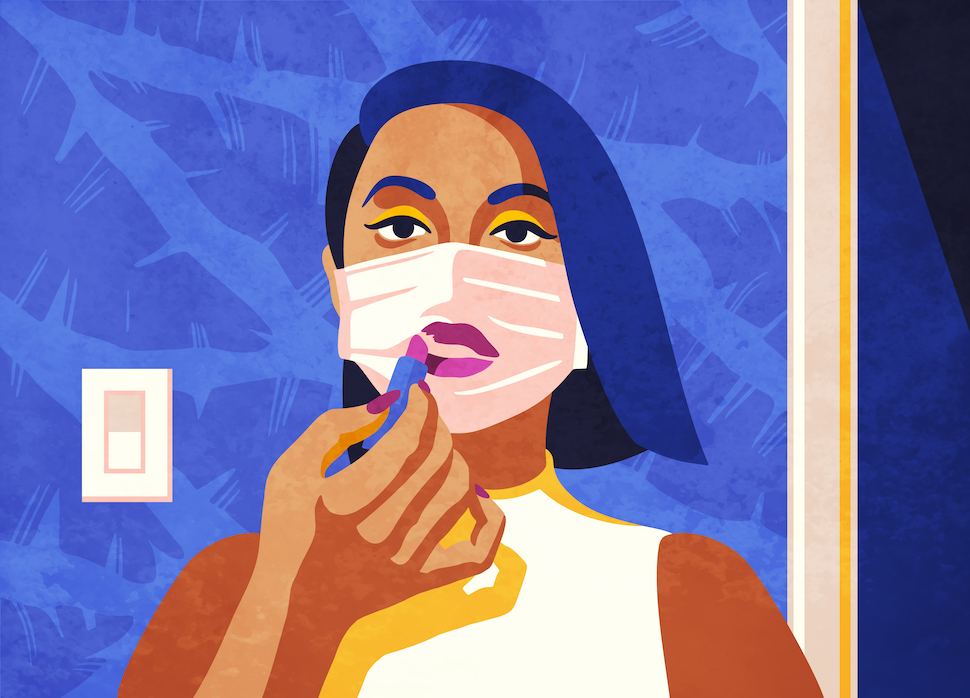Table of Contents
Every year, Americans and the rest of the world hear an annual message from the President of the United States. The State of the Union.
From bigger budgets to booming economies and rising employment rates, it’s progress, progress, and more progress.
Total fulfillment of the American dream is evidently just up ahead.
But what of the State of Our Cosmetic Union? The “ubiquitous products” from an $80-billion-dollar industry that “regulates itself” and of which we’re all such avid users?
On behalf of We the Consumers, this is the state of cosmetics à la 2020.
Contents
1. Cosmetic Un-Safety 1012. Clean Beauty & Cosmetic Safety Law
3. “Fragrance” Means Any One or More of 3,000 Unlisted Ingredients
4. Chemicals in Cosmetics
5. Dirty Cosmetics Affect Fertility
6. Dirty and Dangerous Cosmetics Are Sexist & Racist Cosmetics
7. The FDA’s Limited Abilities In Ensuring and Enforcing Clean Beauty & Cosmetic Safety
8. The Cosmetics Industry Regulates Itself
9. Size & Scope of the Industry
10. The Bright Side: Clean Cosmetics & Natural Beauty Are Booming
THE STATE OF OUR COSMETIC UNION, 2020
Nine
cosmetic ingredients regulated by FDA for safety reasons
49.2B
U.S. cosmetic industry revenue 2019
22B
Projected value of the organic personal care market by 2024
14,000
cosmetic ingredients banned or restricted by other nations
< 1/1000
Percent of cosmetic imports physically inspected by FDA
Fifty-Five
clean and organic cosmetic companies on two years of Inc. 5000 lists
1. Cosmetic Un-Safety 101
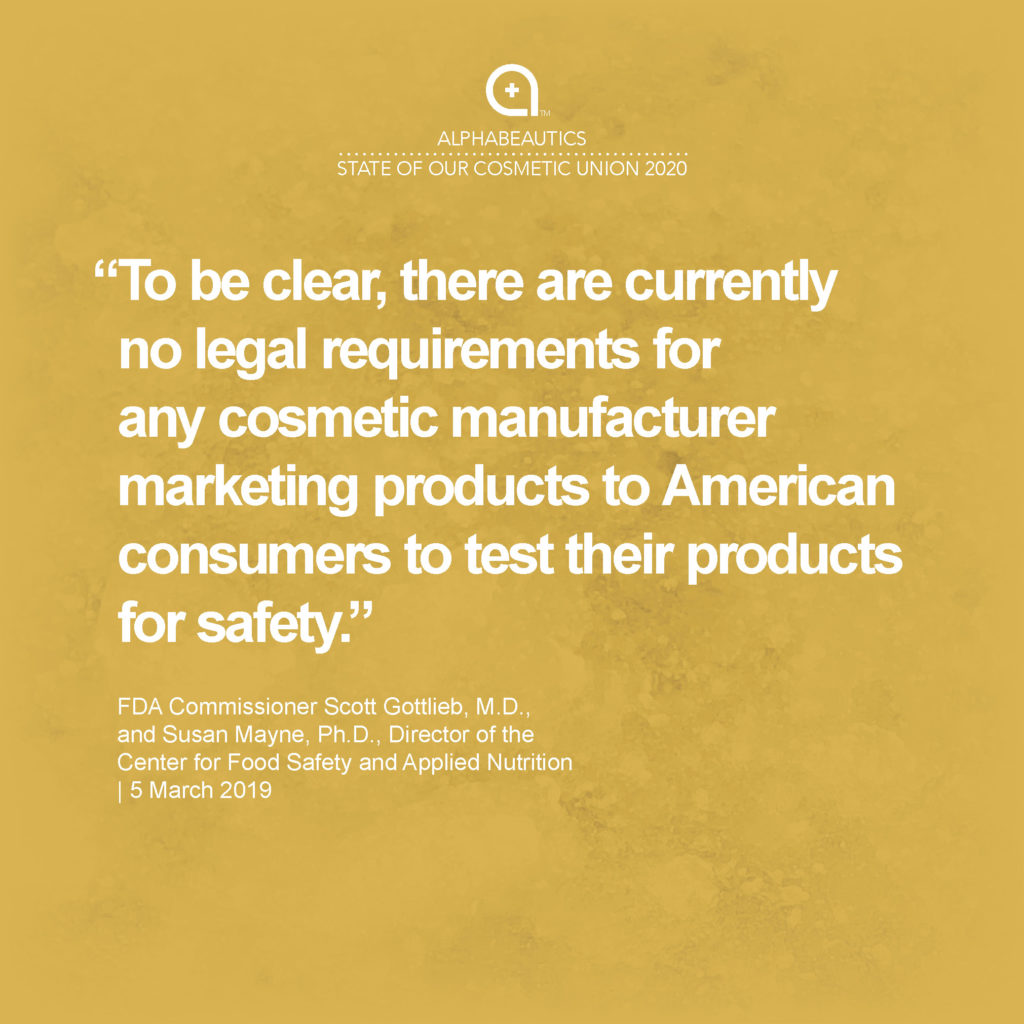
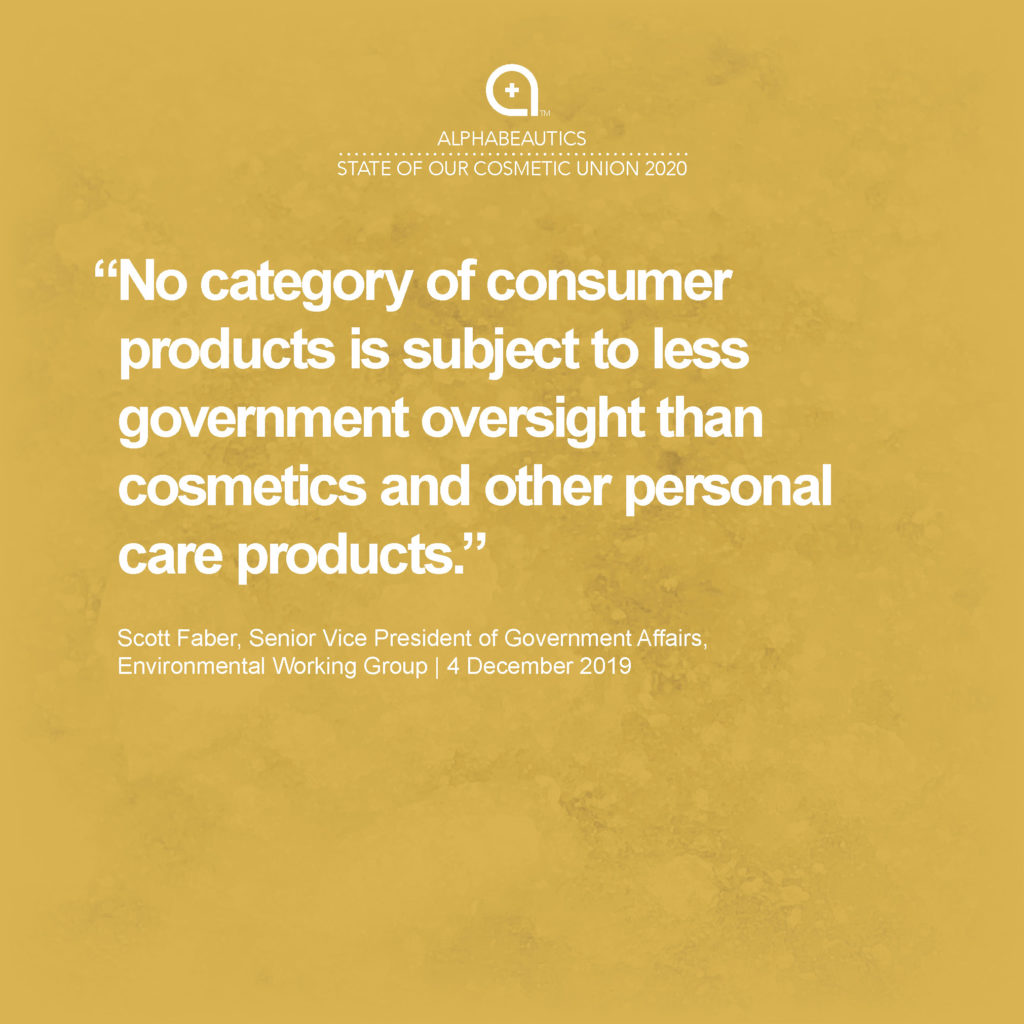
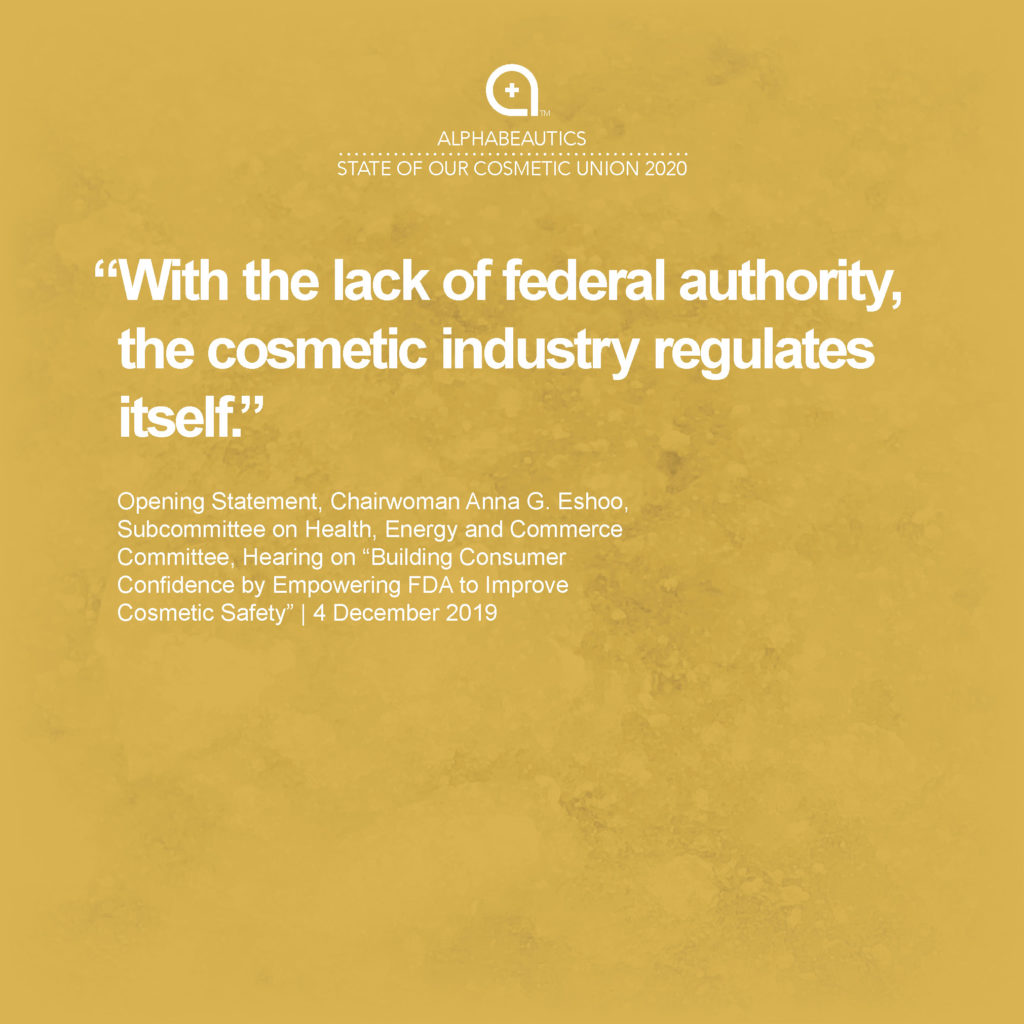
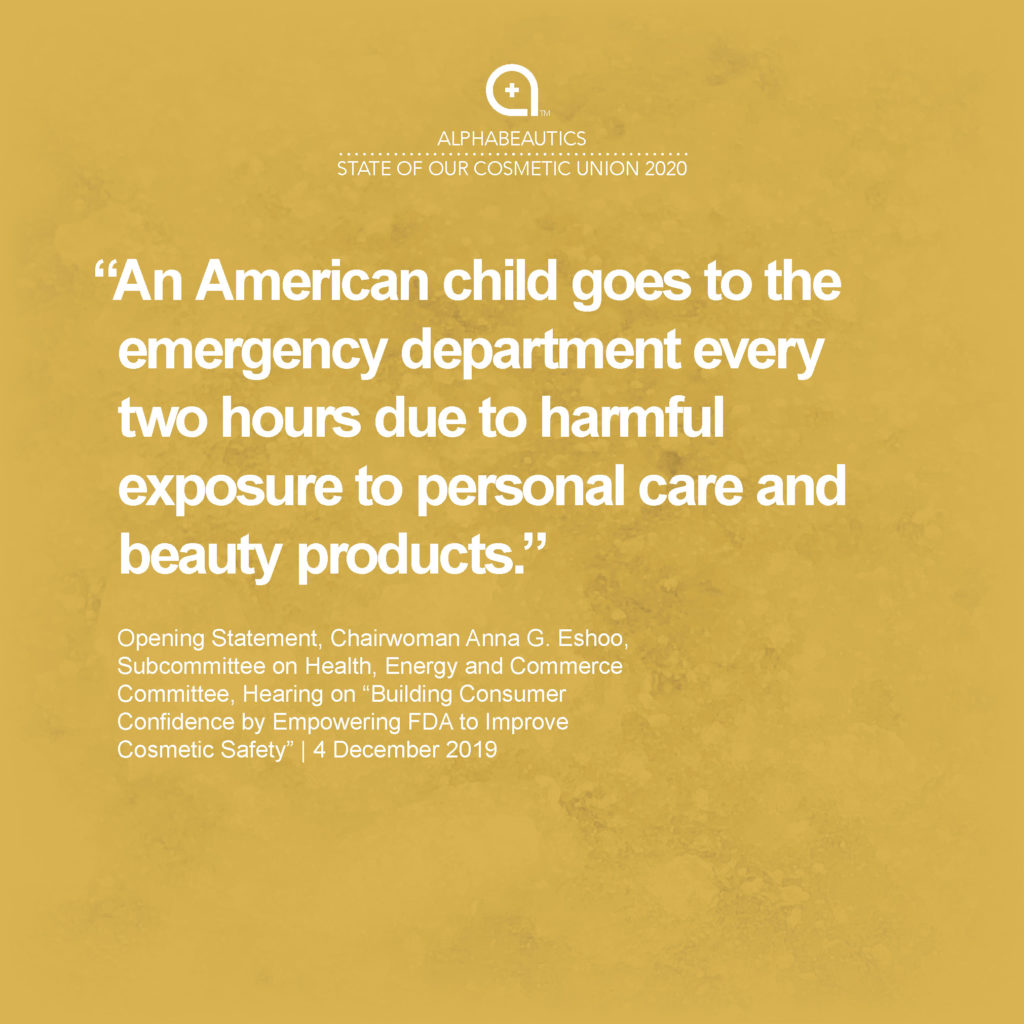
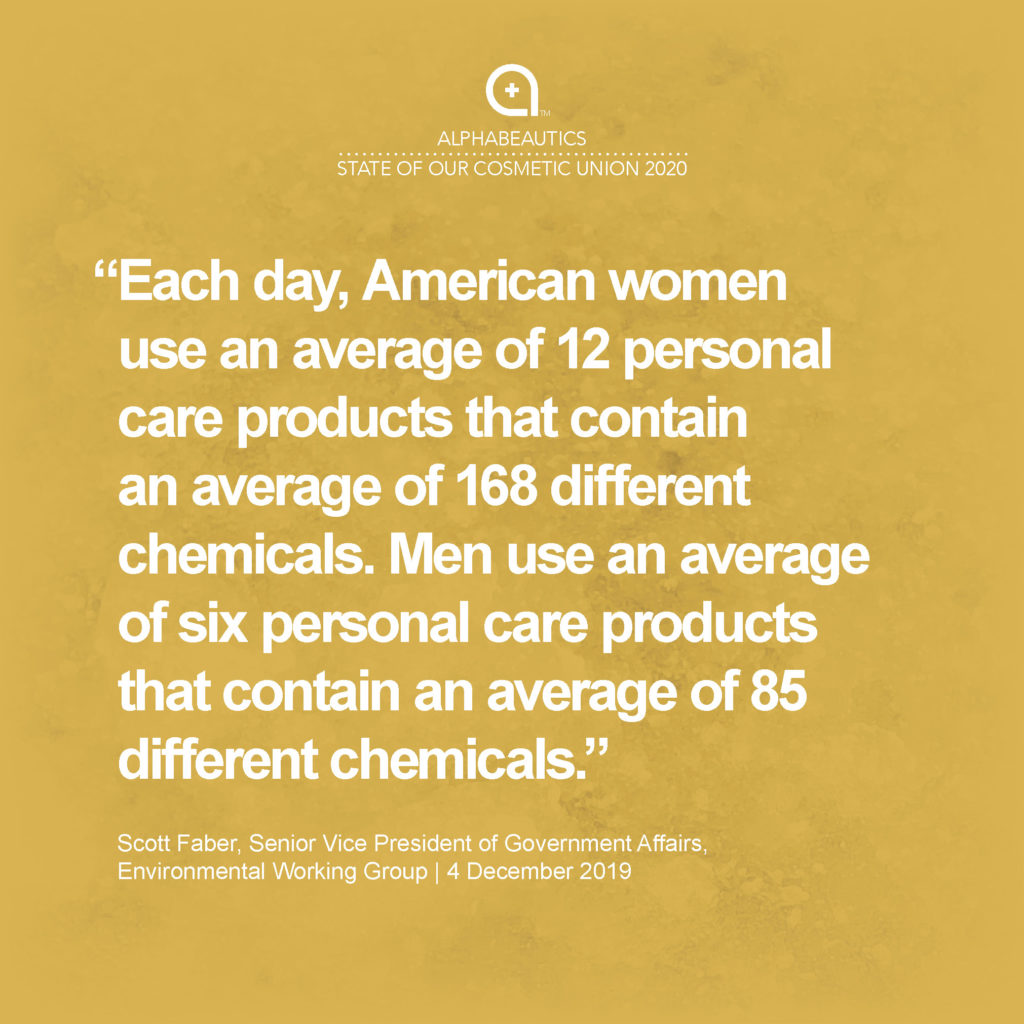
2. Clean Beauty & Cosmetic Safety Law: The FDCA
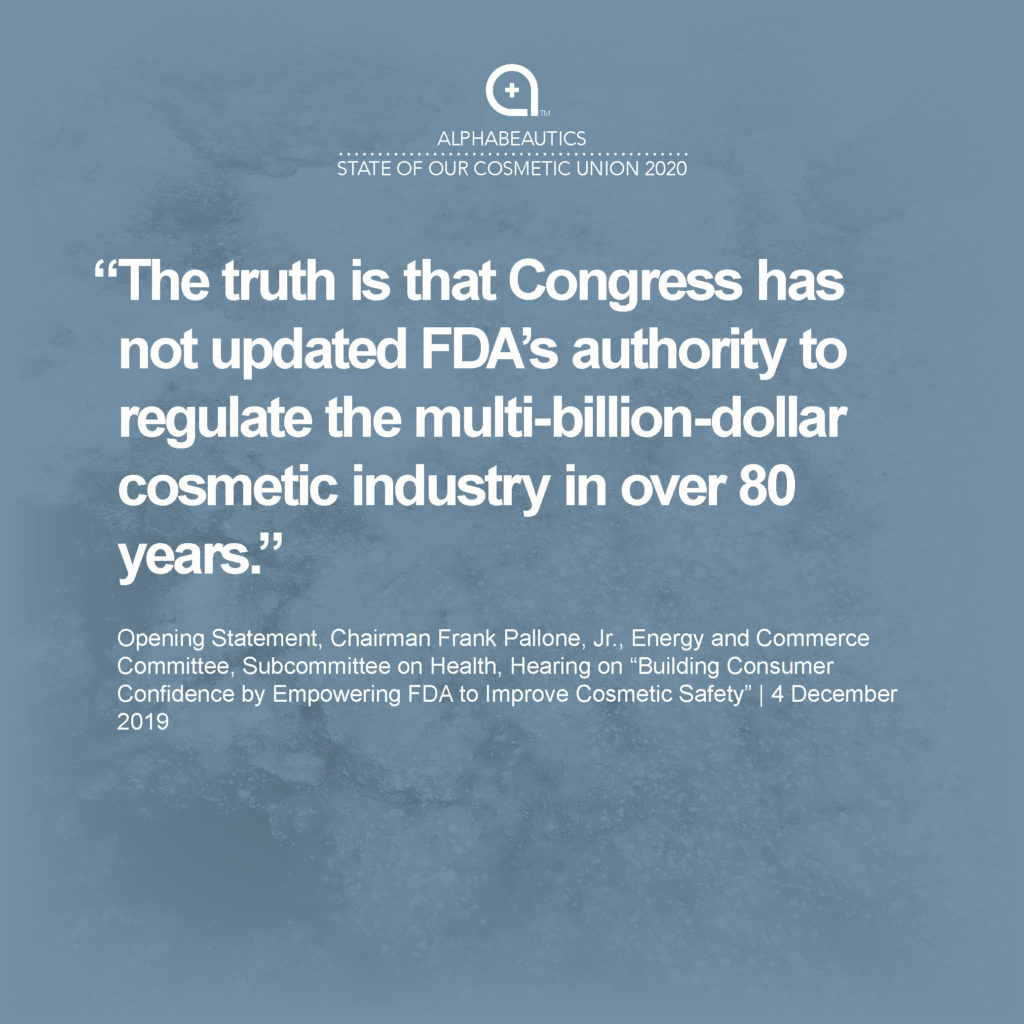
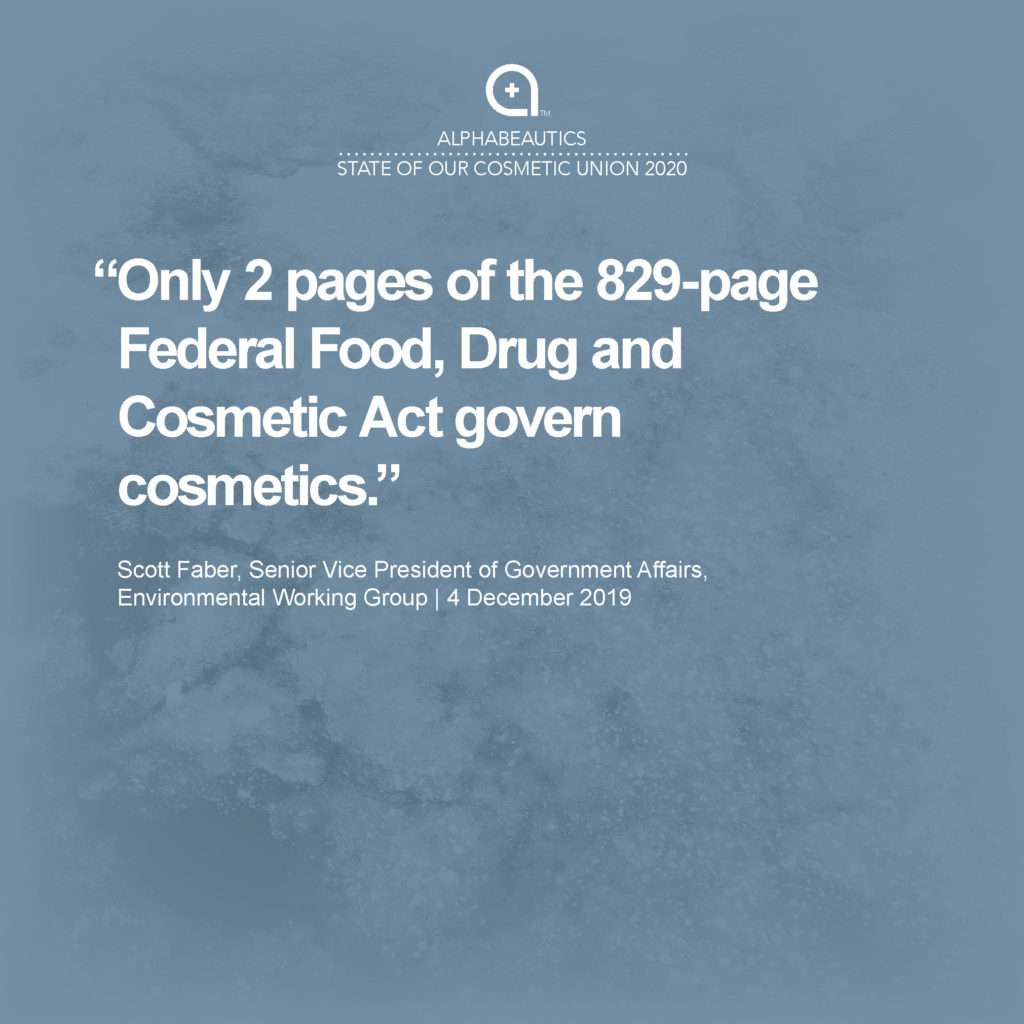
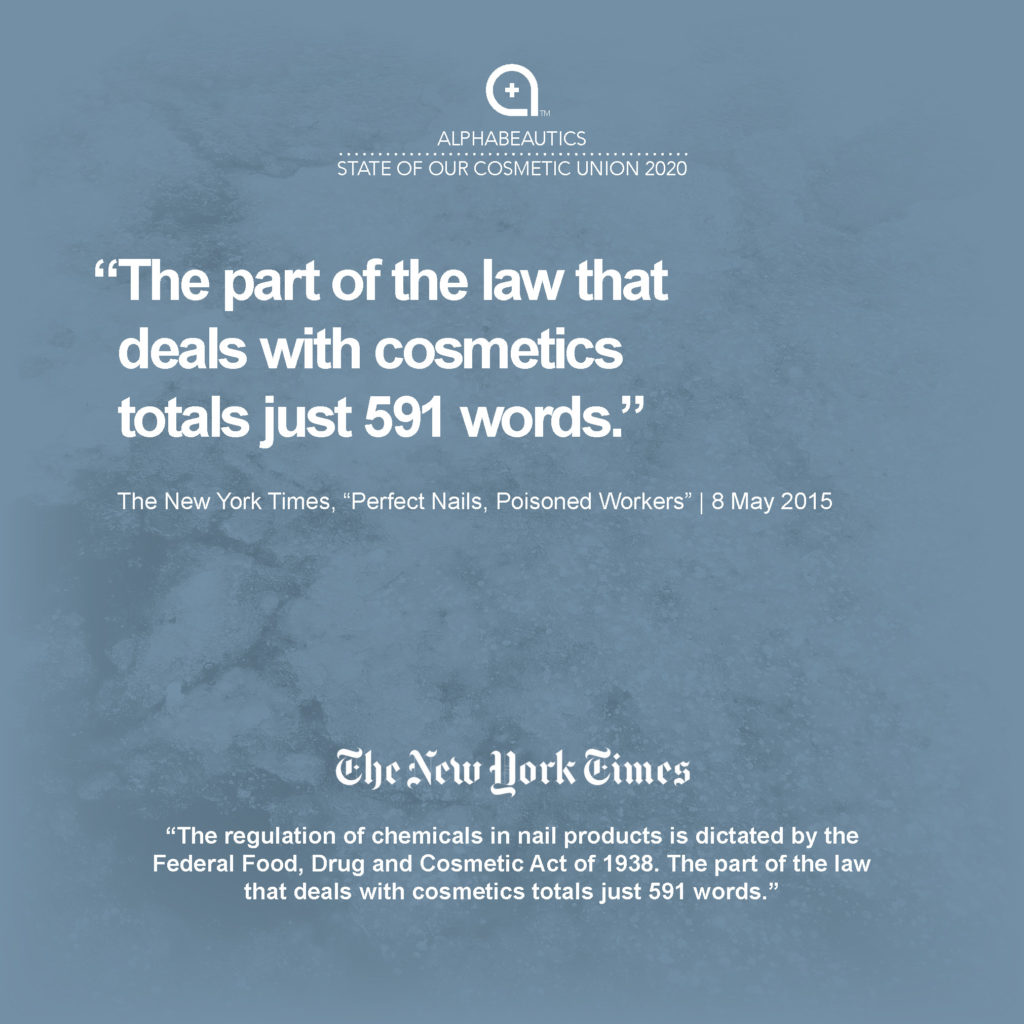
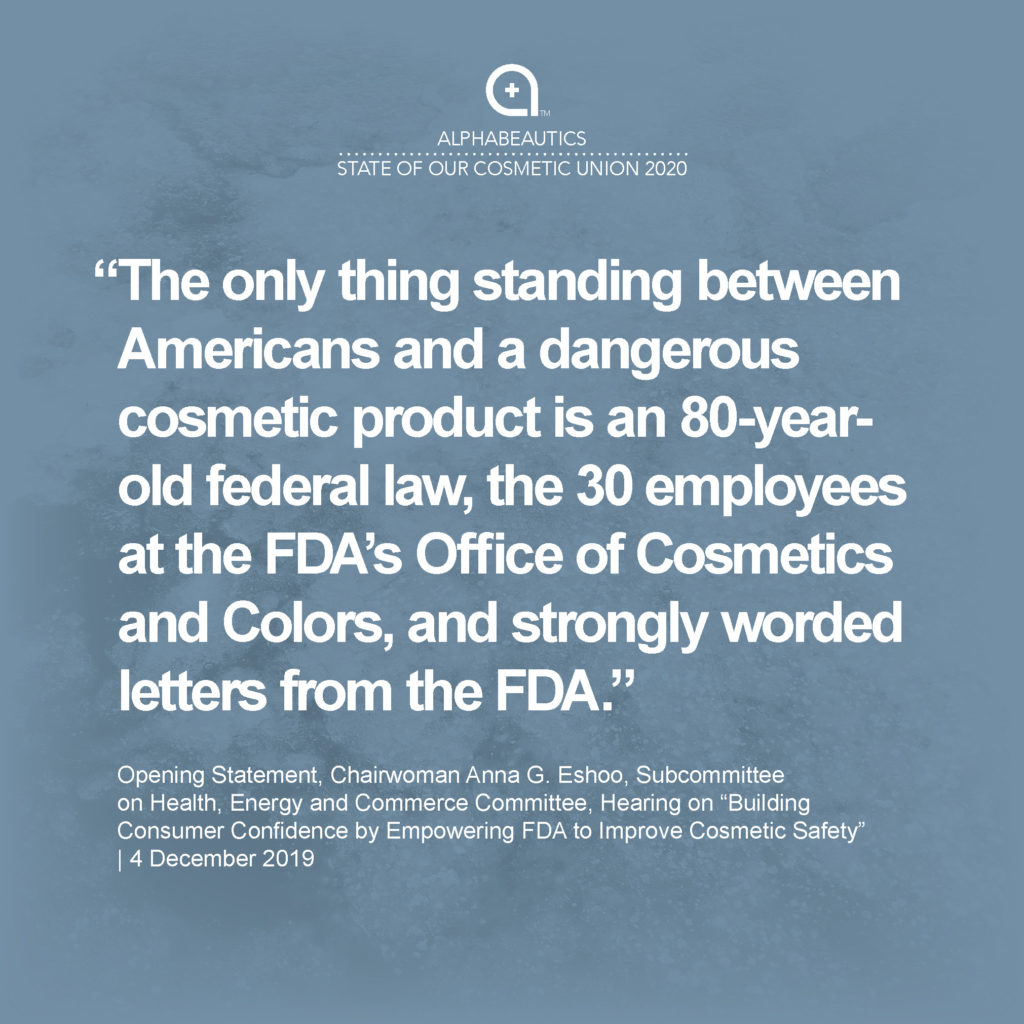
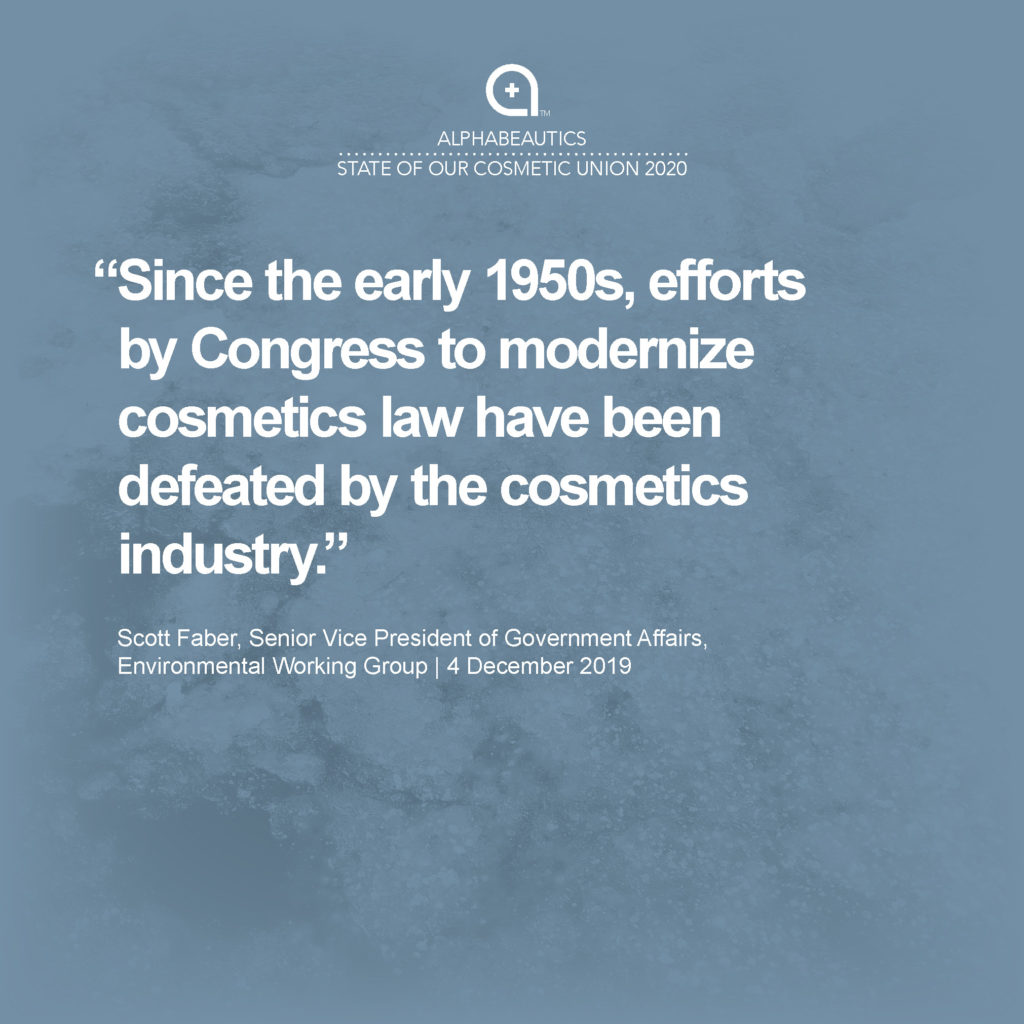
3. ‘Fragrance’ Means Any One or More of 3,000 Unlisted Ingredients
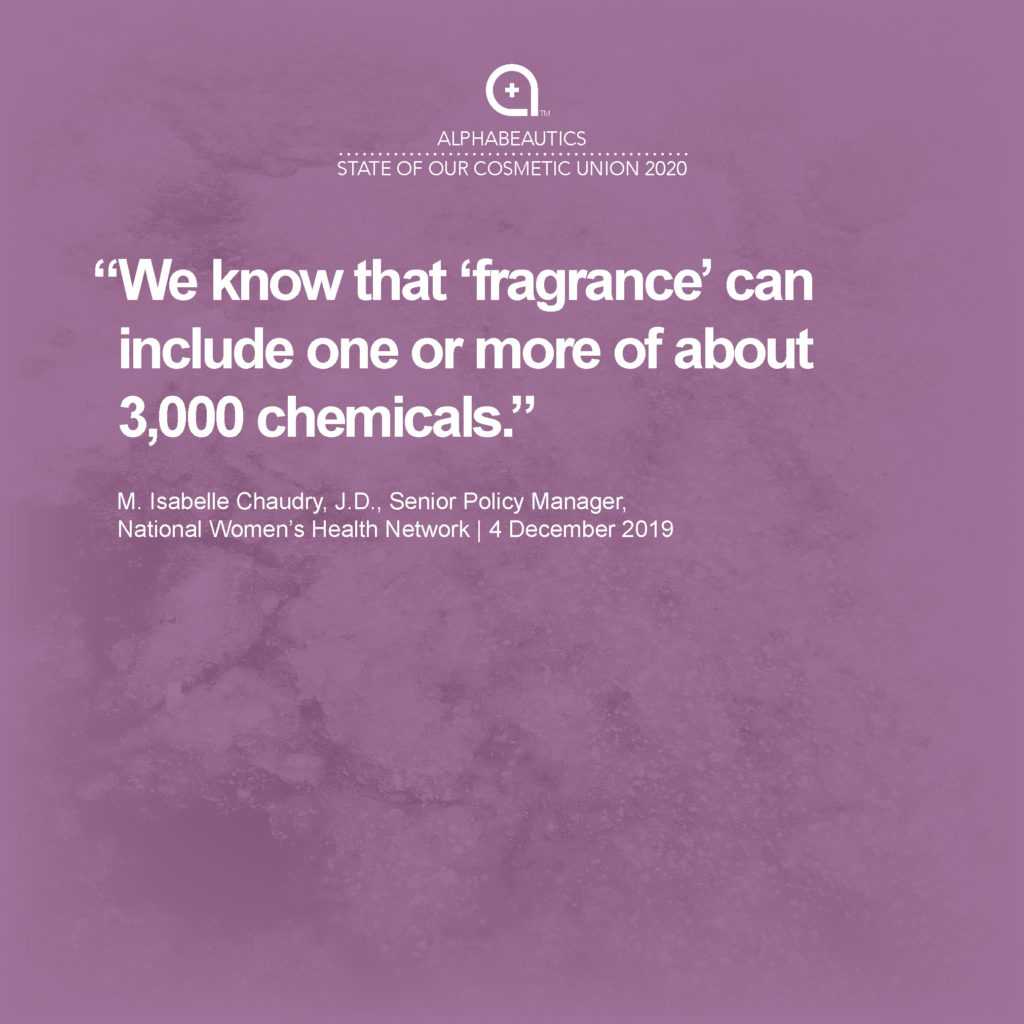
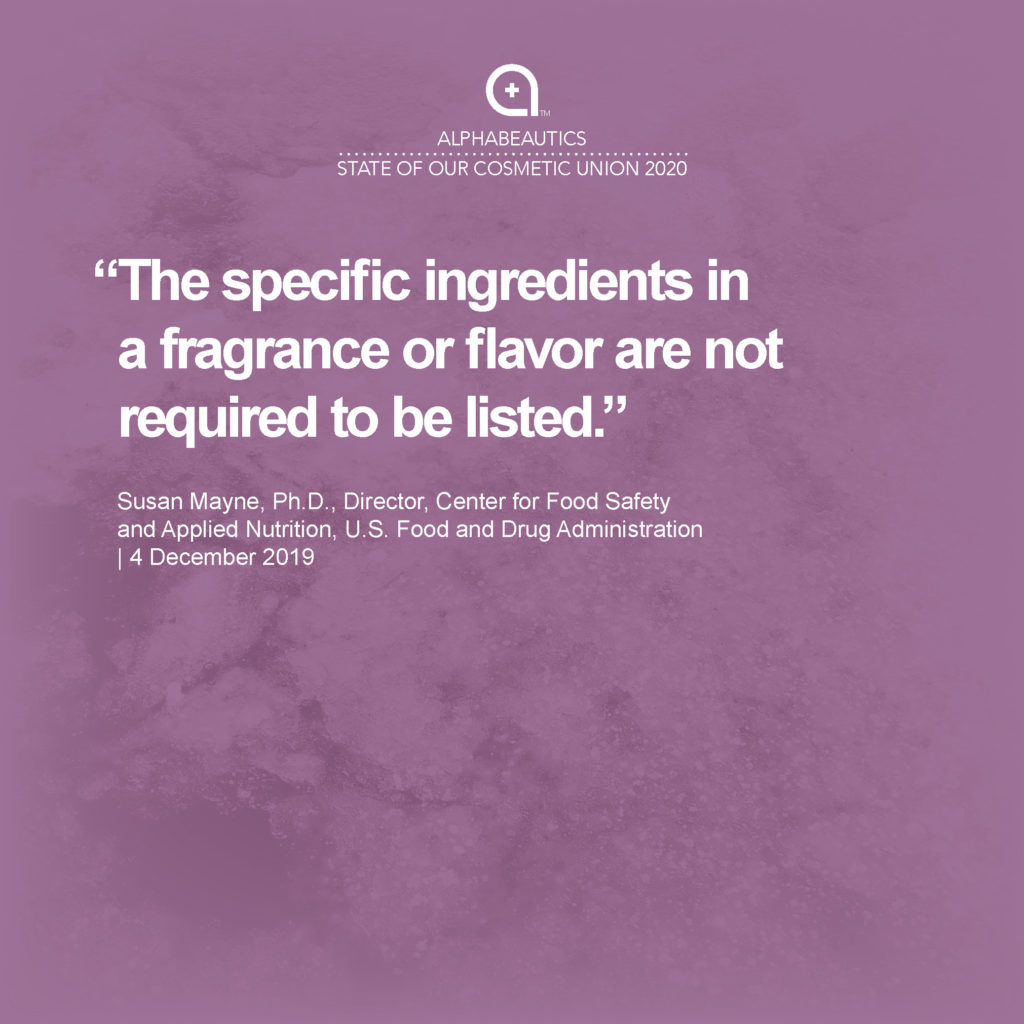
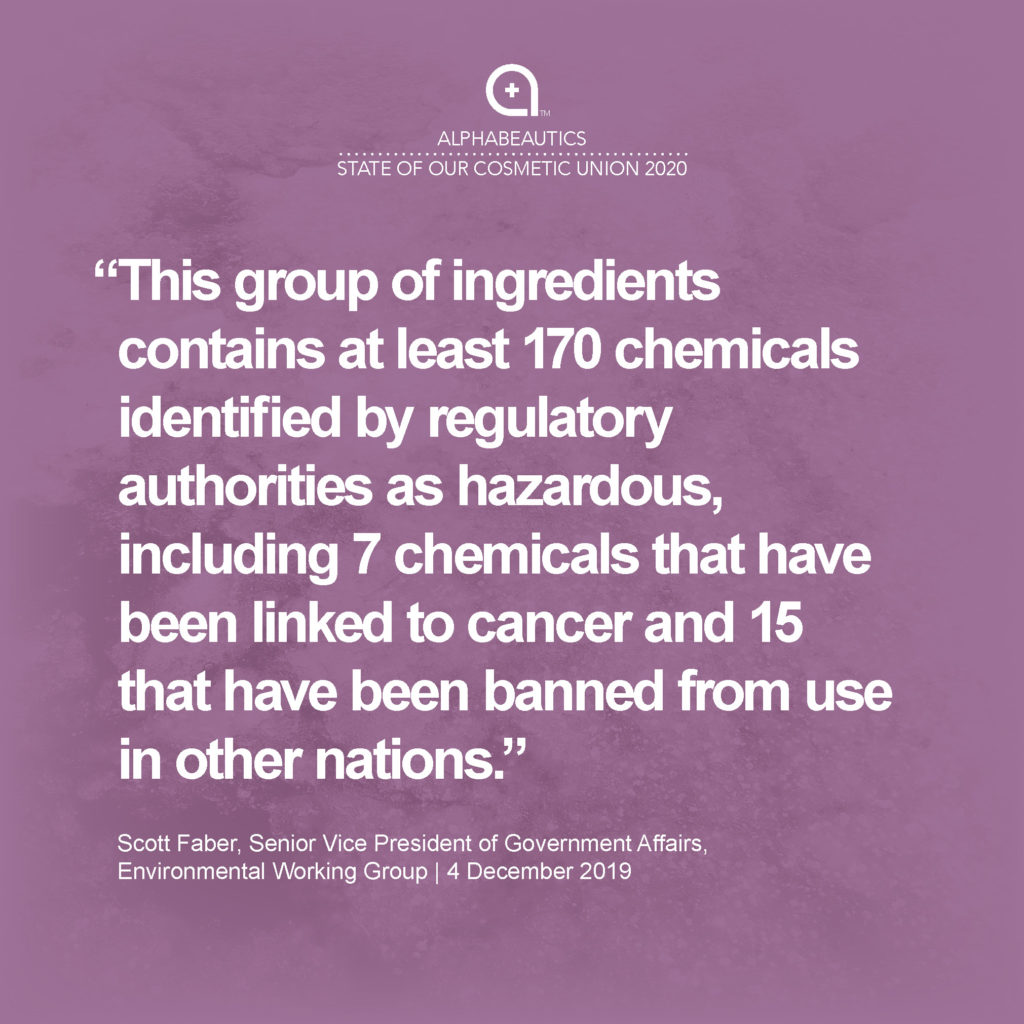
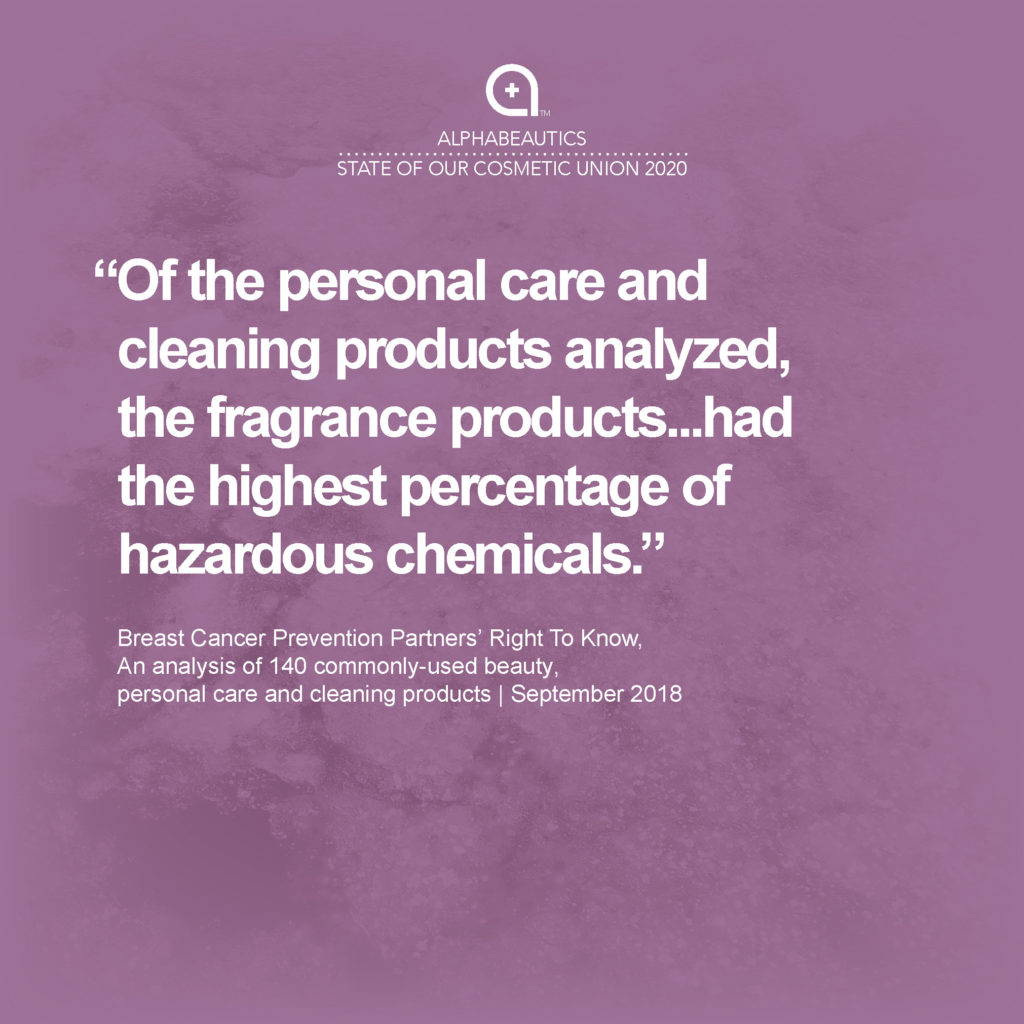
4. Chemicals In Cosmetics
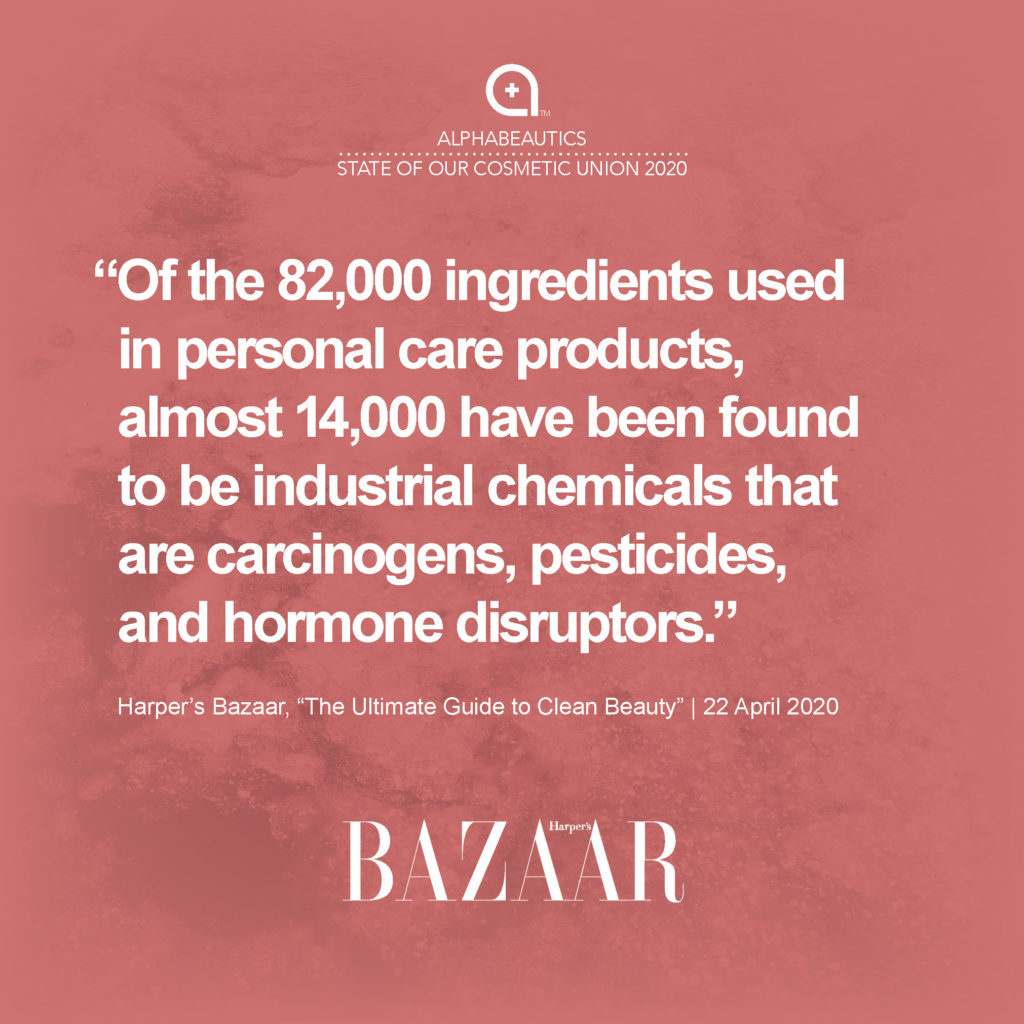
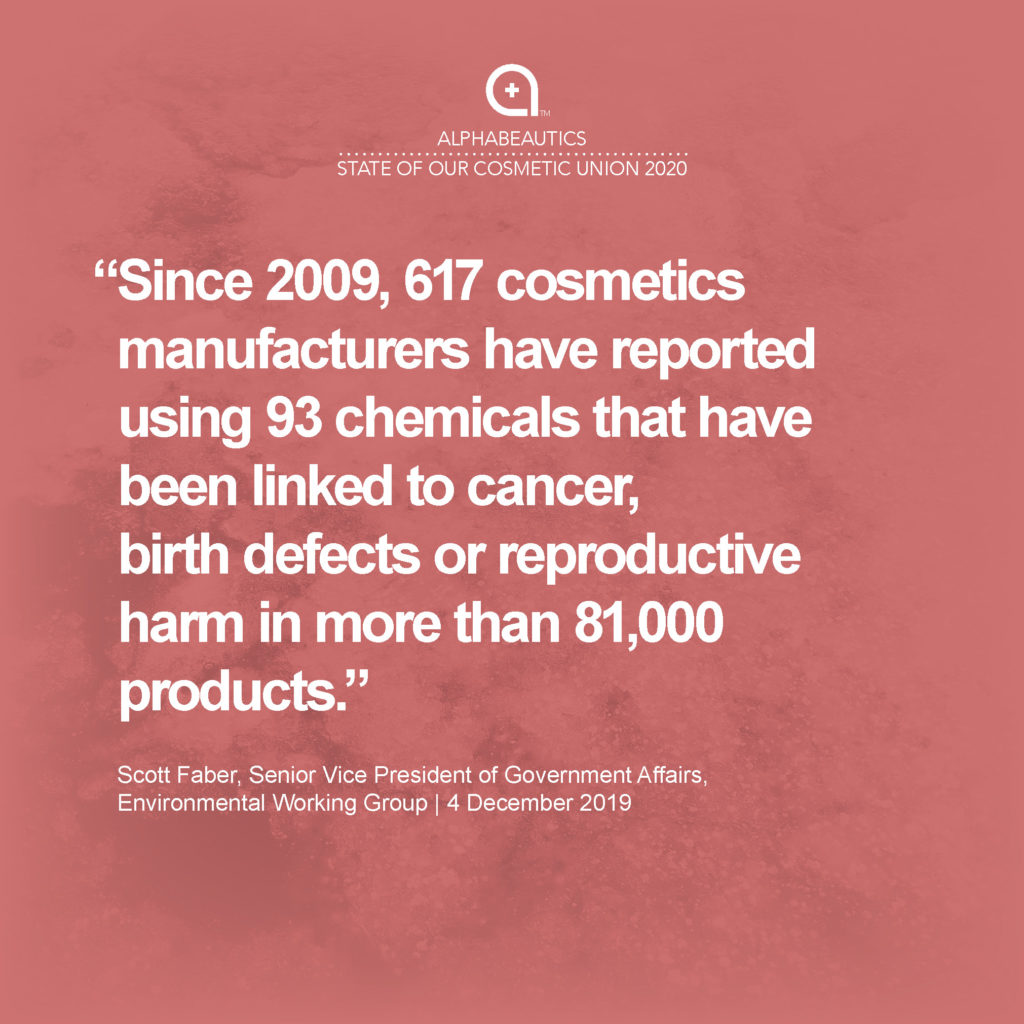
“In addition to the risks posed by intentionally added ingredients, cosmetics can be contaminated with heavy metals, including arsenic, cadmium, lead and nickel, or contain banned ingredients like mercury. (Ref 24)” – Scott Faber, Senior Vice President of Government Affairs, EWG
”Scientific research continues to reveal multiple connections between exposure to harmful ingredients and significant health issues like cancer, delayed brain development, and disruption of our hormones, which is why Beautycounter created The Never List™ — over 1,800 ingredients we pledge never to formulate with.” – Gregg Renfrew, Founder and CEO, Beautycounter, LLC. Written Statement Before The Subcommittee On Health Of The U.S. House Committee On Energy And Commerce, 4 December 2019
“Under current law, dangerous chemicals used in personal care products are still not banned, restricted, or even required to be studied for their safety.” – M. Isabelle Chaudry, J.D., Senior Policy Manager, National Women’s Health Network
5. Dirty Cosmetics Affect Fertility
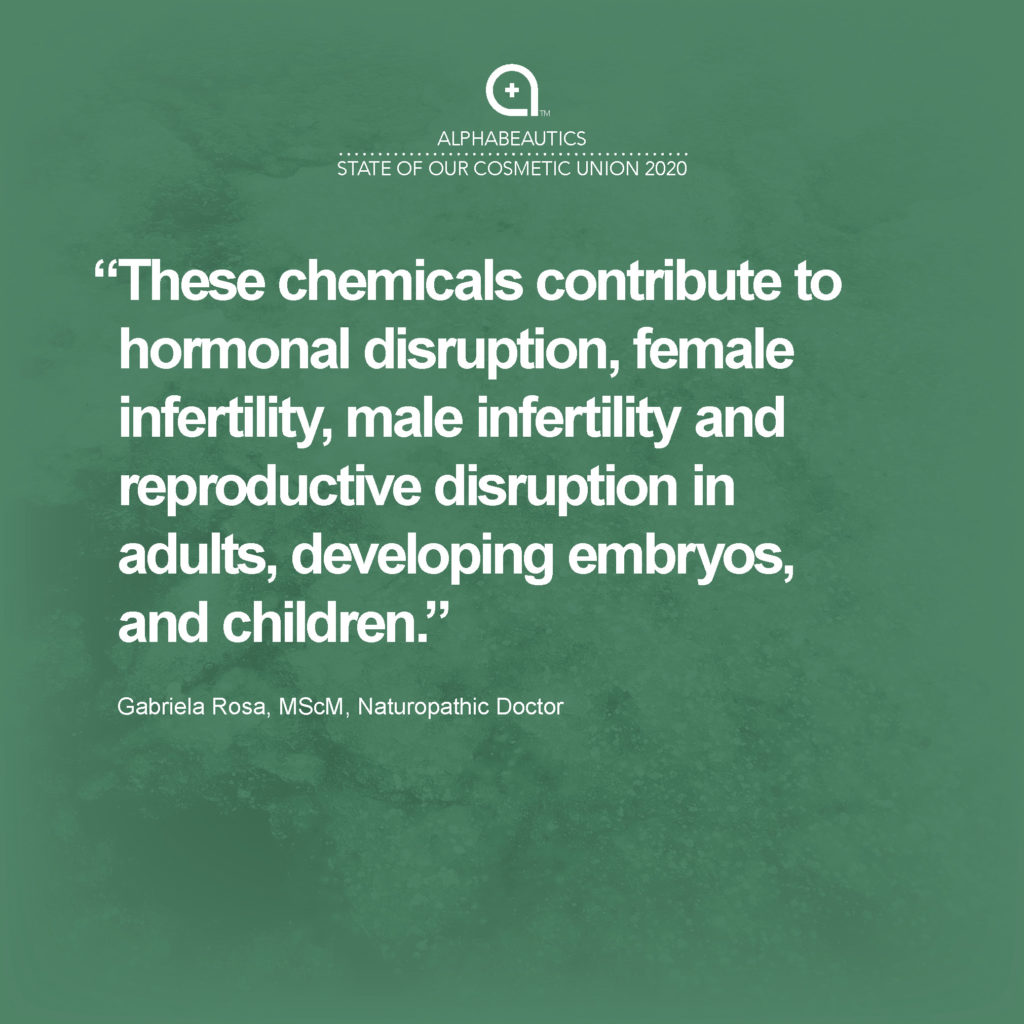
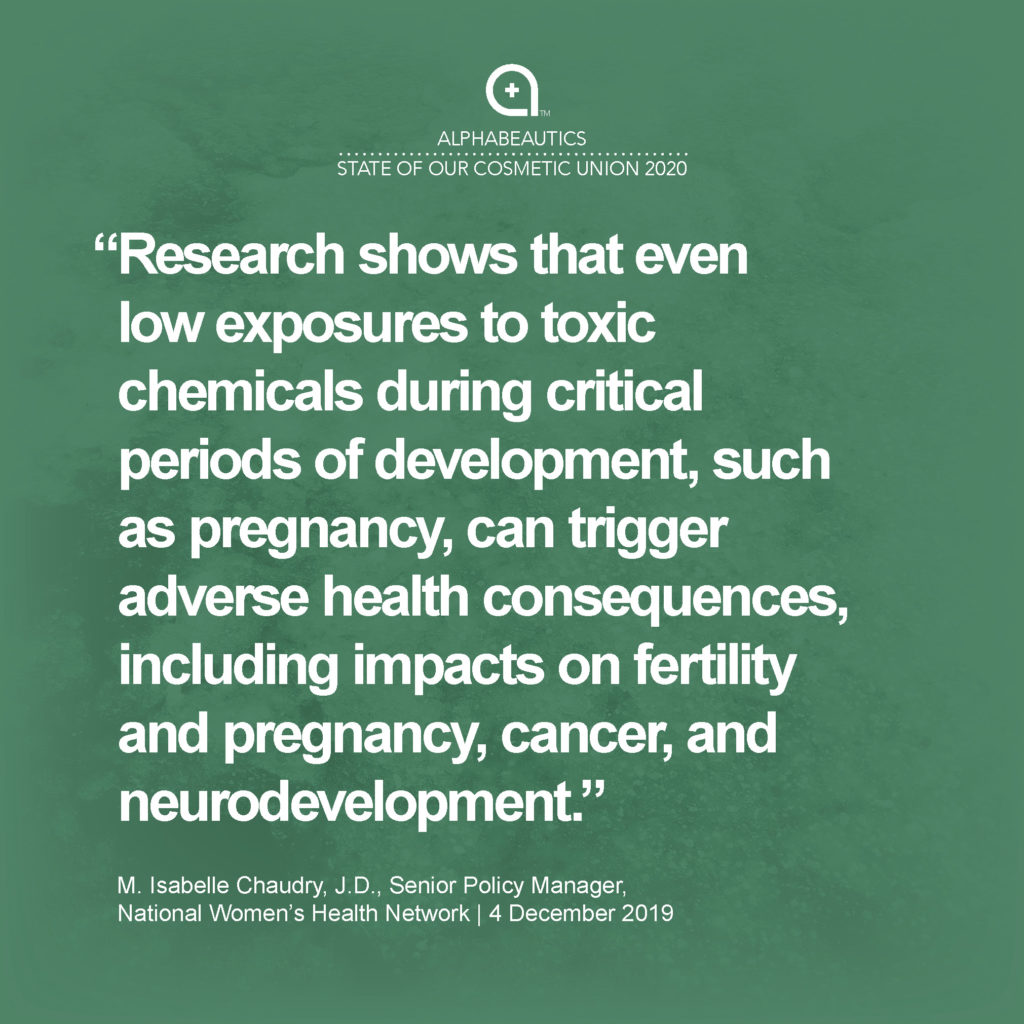
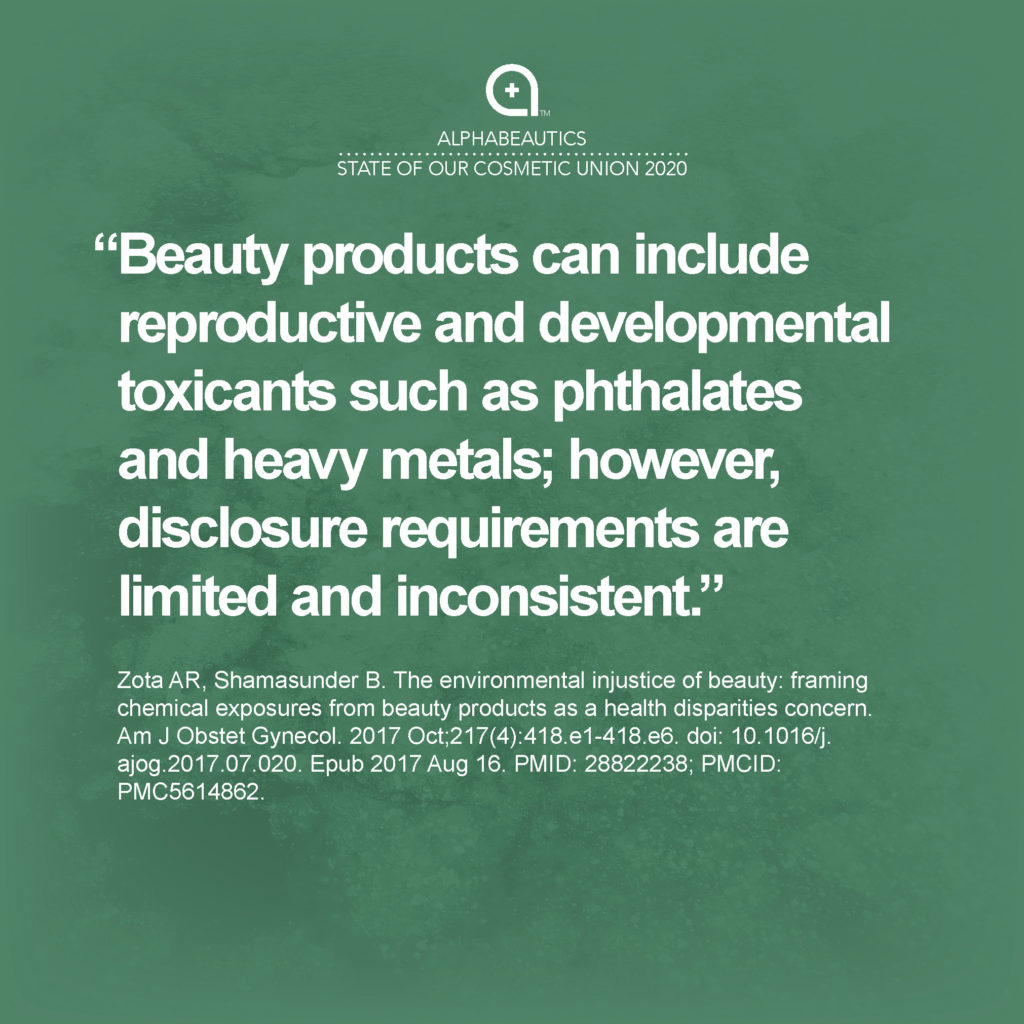
“What is at issue here is the ability to conceive and carry a pregnancy to term as well as the ability to survive through and post menopause without experiencing certain diseases, such as ovarian cancer. Practicing good hygiene and self-care should not create a risk for infertility.” – M. Isabelle Chaudry, J.D., Senior Policy Manager, National Women’s Health Network
6. Dirty and Dangerous Cosmetics Are Sexist & Racist Cosmetics
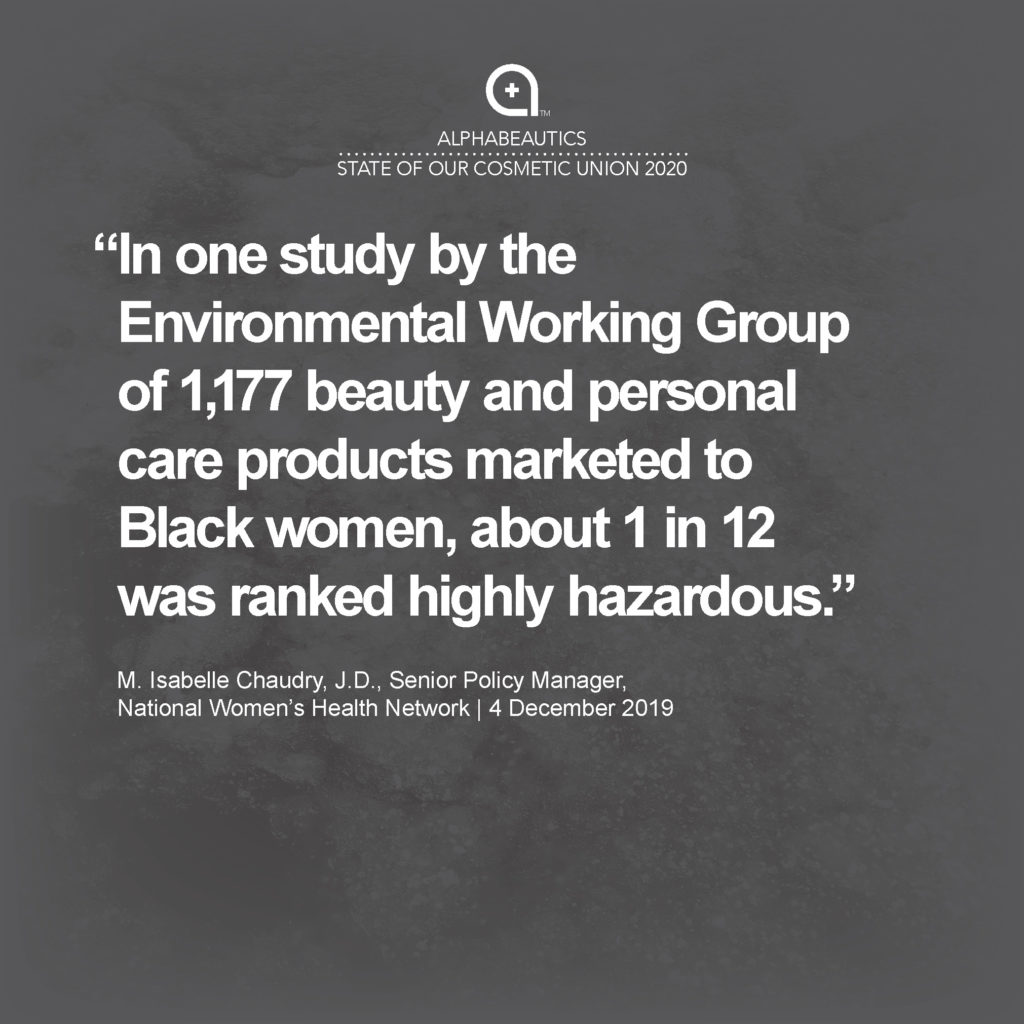
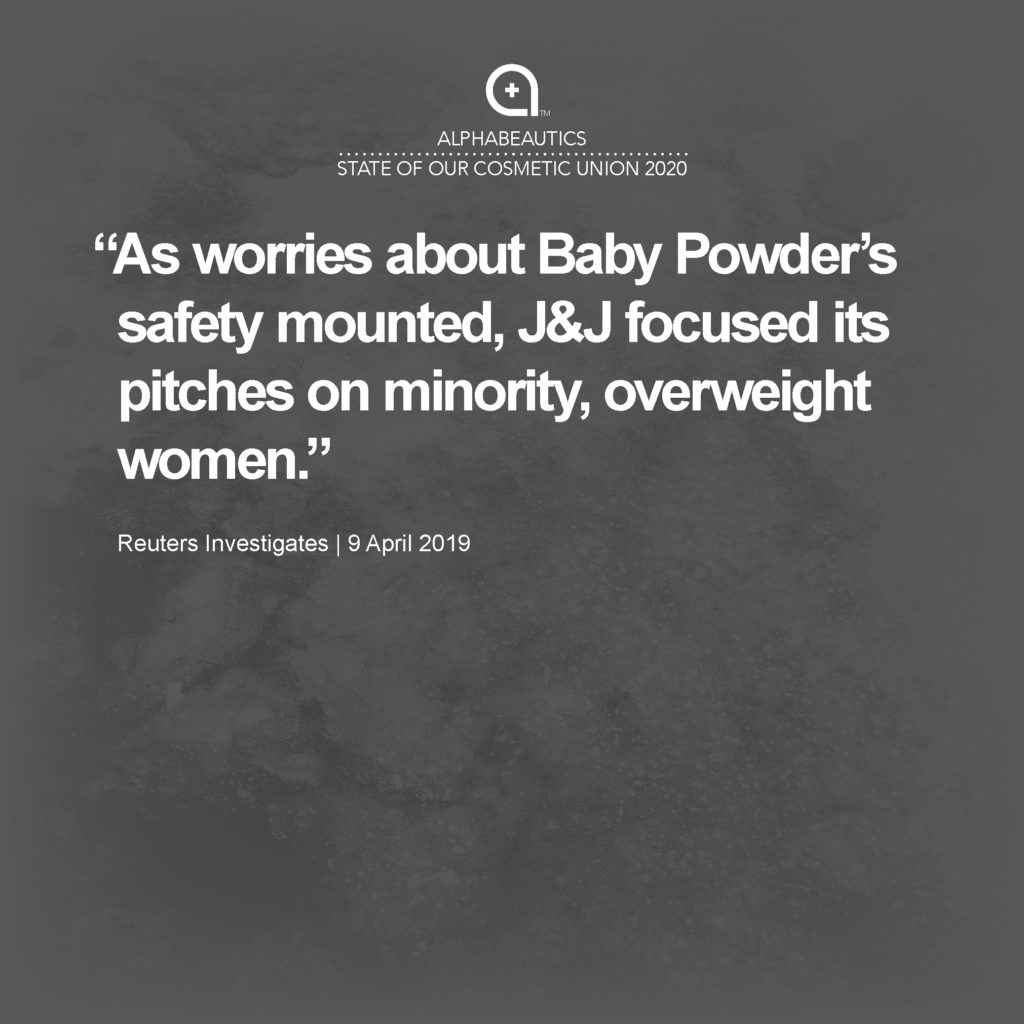
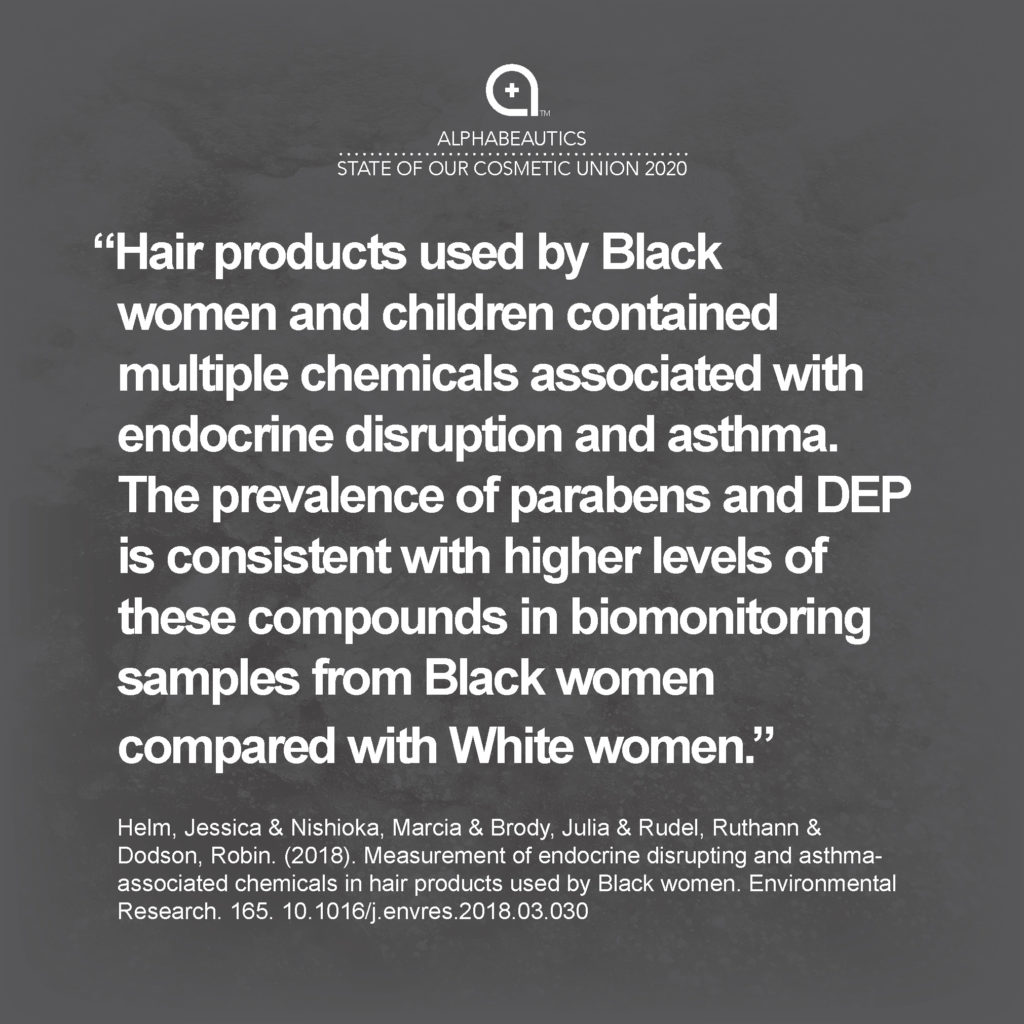
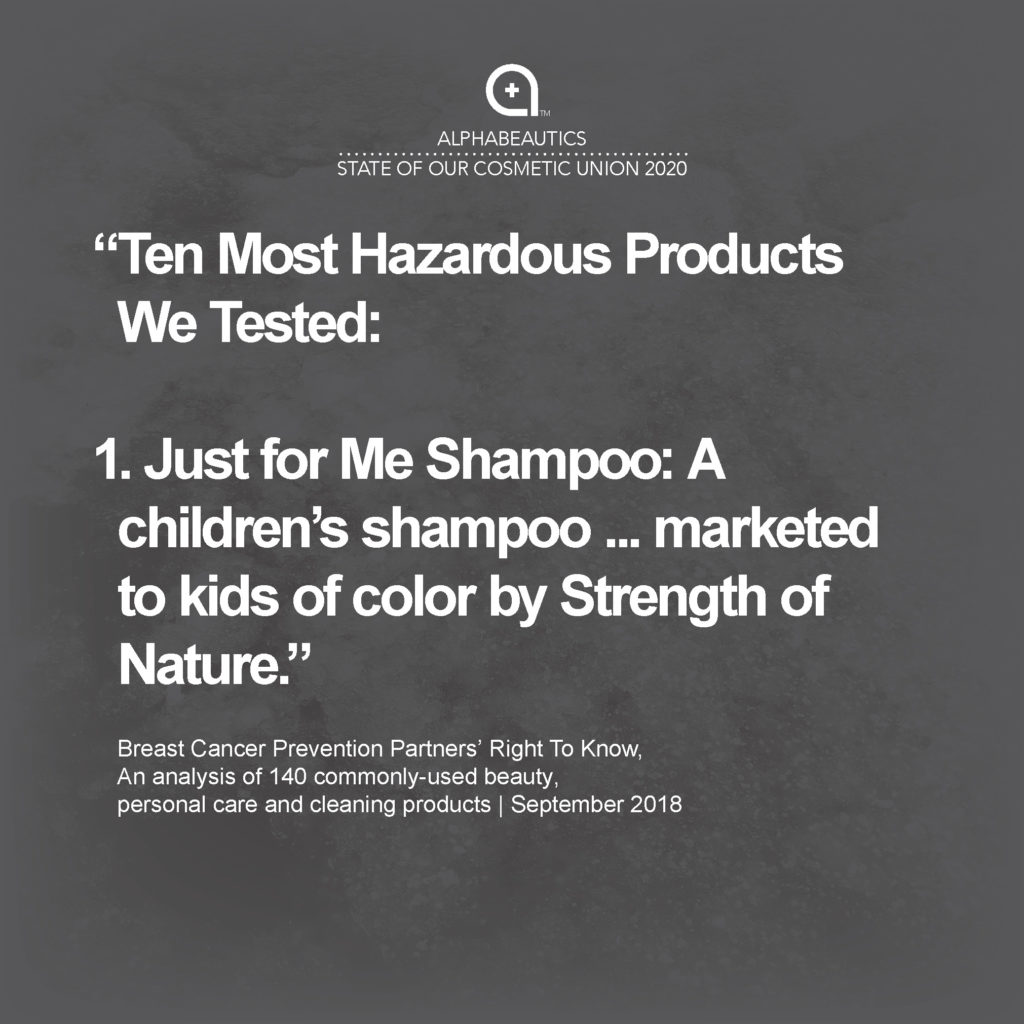
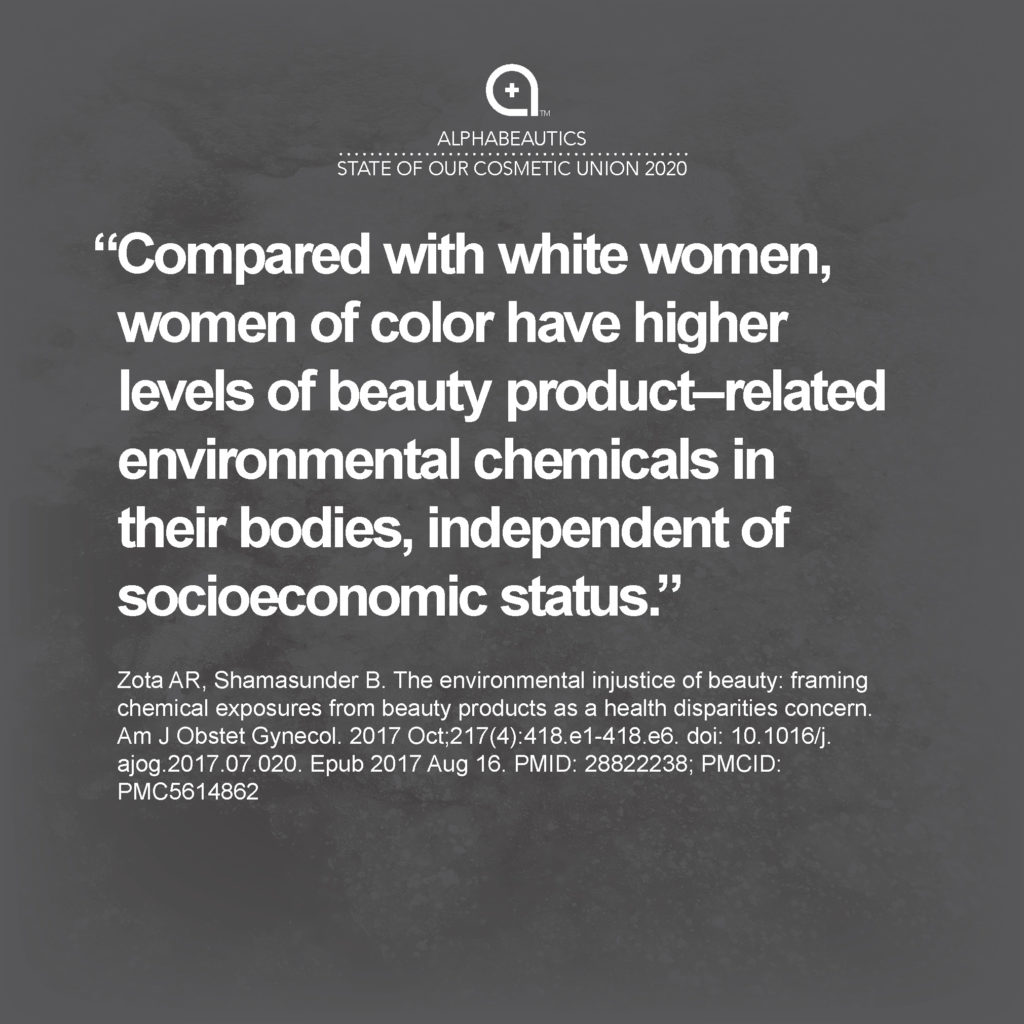
“We know that, in many cases, companies have actively targeted and marketed talc-based products contaminated with asbestos to Black and Latina women, who remain most affected by a range of reproductive health and comprehensive care barriers and related adverse maternal health risks and outcomes.” – M. Isabelle Chaudry, J.D., Senior Policy Manager, National Women’s Health Network
“Internal documents [from] Johnson & Johnson, one of the country’s largest producers of personal care products containing talc, showed how its marketing efforts focused on the “right place,” and “under developed geographical areas with hot weather, and higher AA [African American] population.” (Ref 15) Johnson & Johnson distributed Baby Powder samples through churches and beauty salons in African-American and Hispanic neighborhoods, ran digital and print promotions with weight-loss and wellness company Weight Watchers, and launched a $300,000 radio advertising campaign in a half-dozen markets aimed at reaching “curvy Southern women 18-49 skewing African American.” – M. Isabelle Chaudry, J.D., Senior Policy Manager, National Women’s Health Network
7. The FDA’s Limited Abilities In Ensuring and Enforcing Clean Beauty & Cosmetic Safety
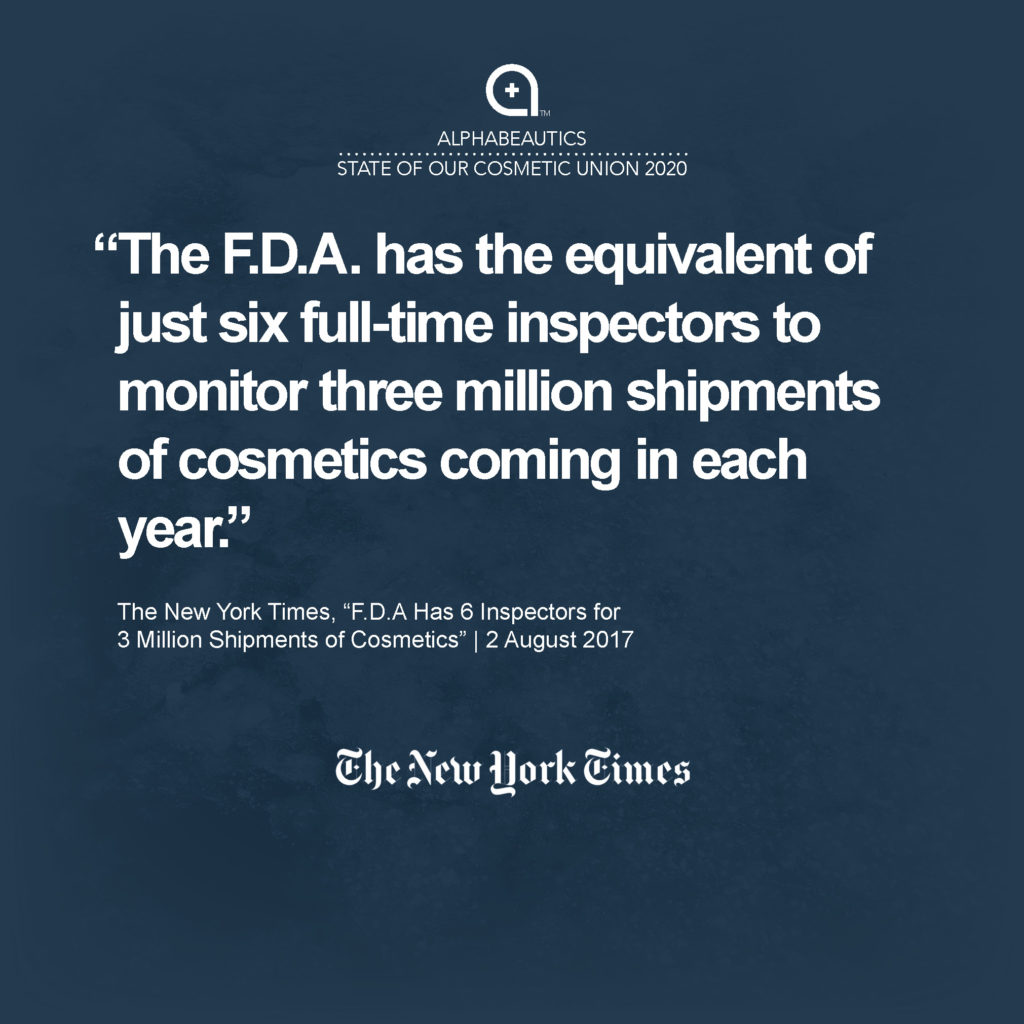
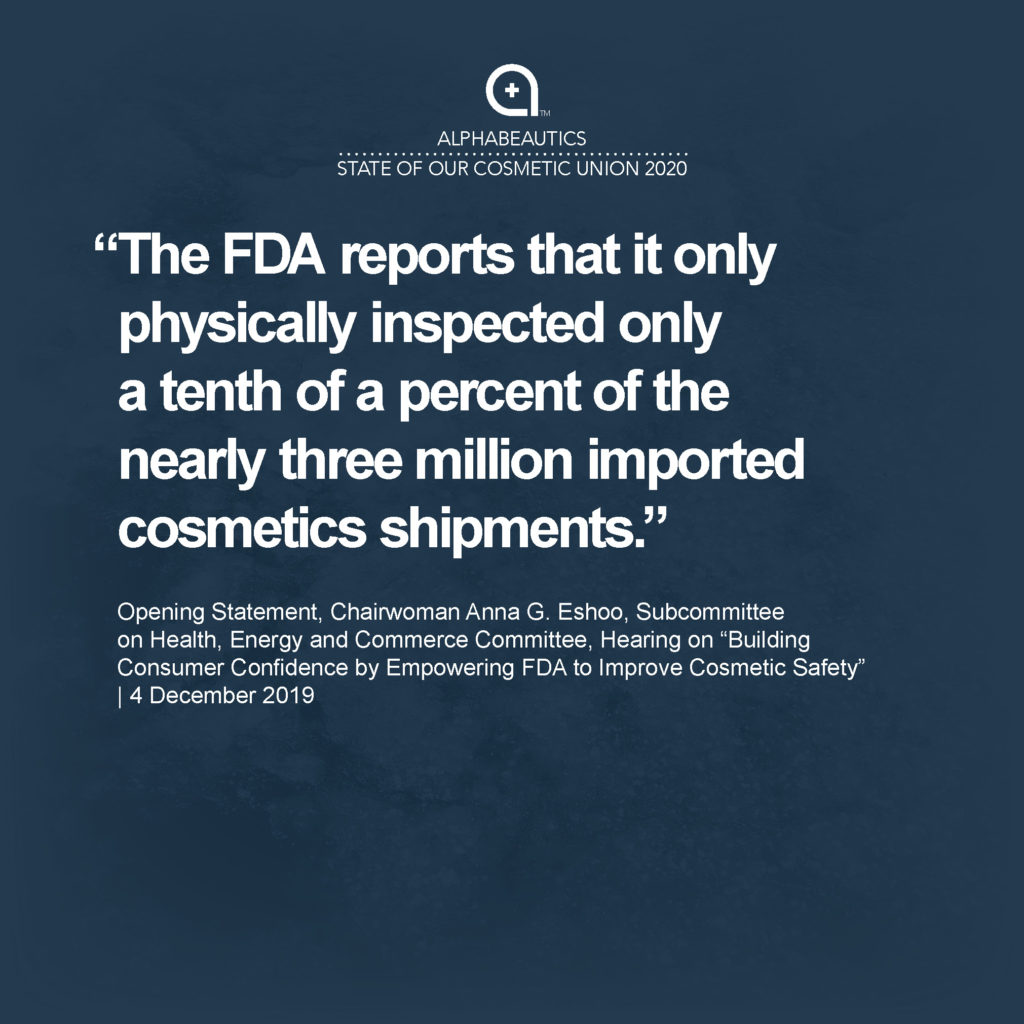
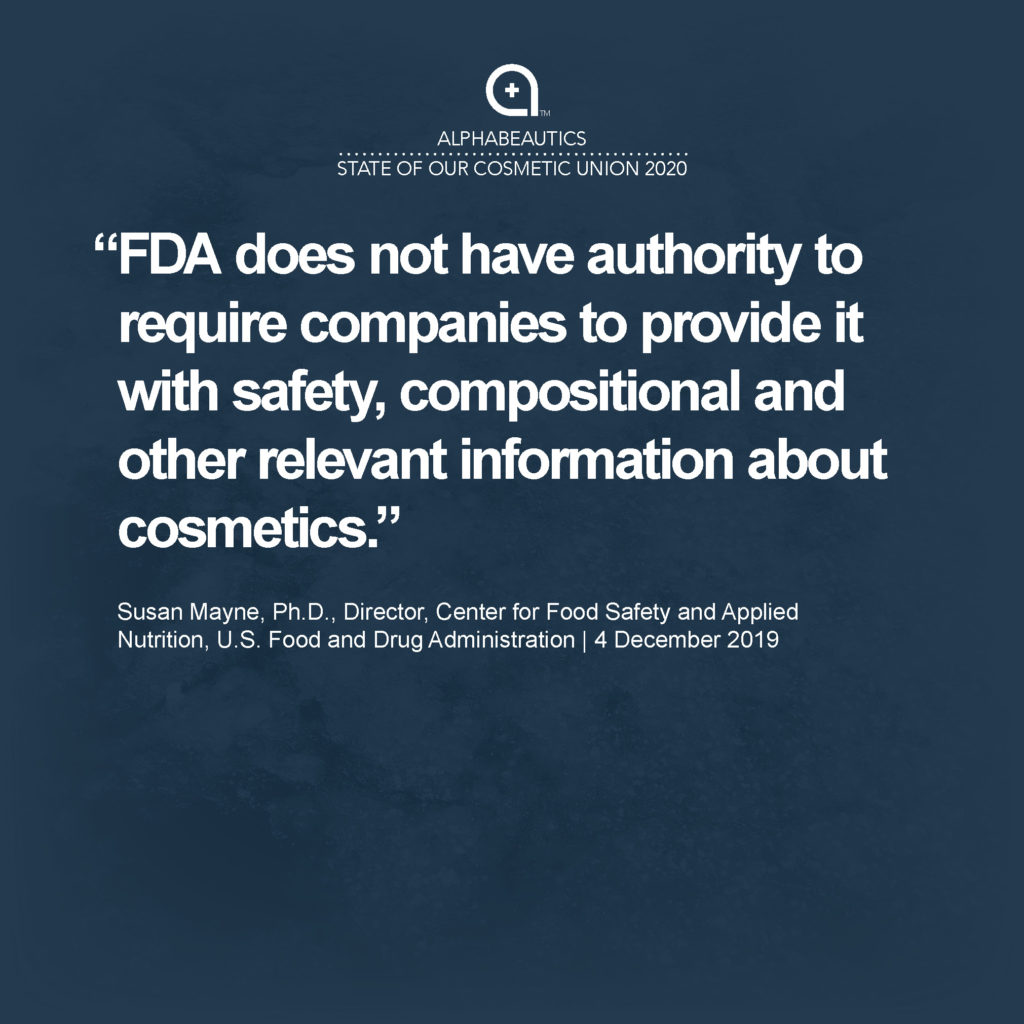
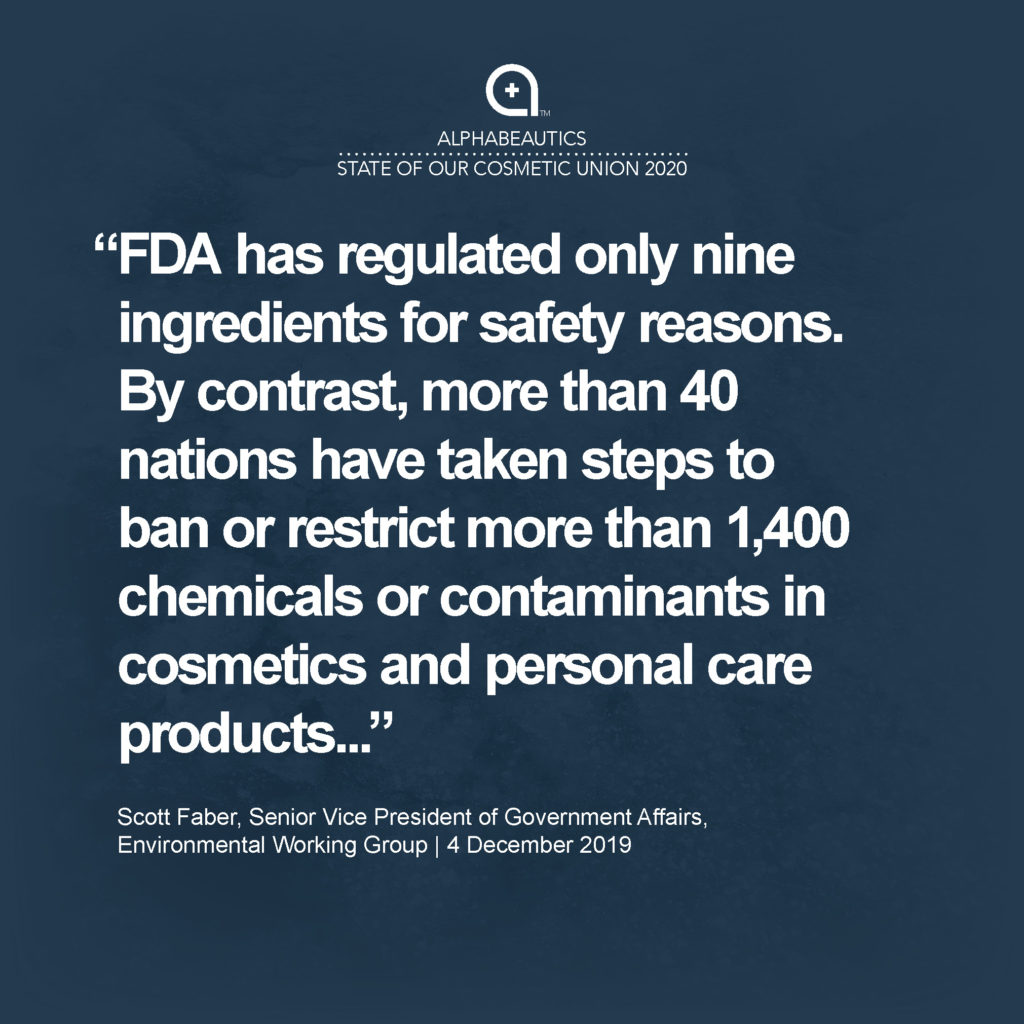
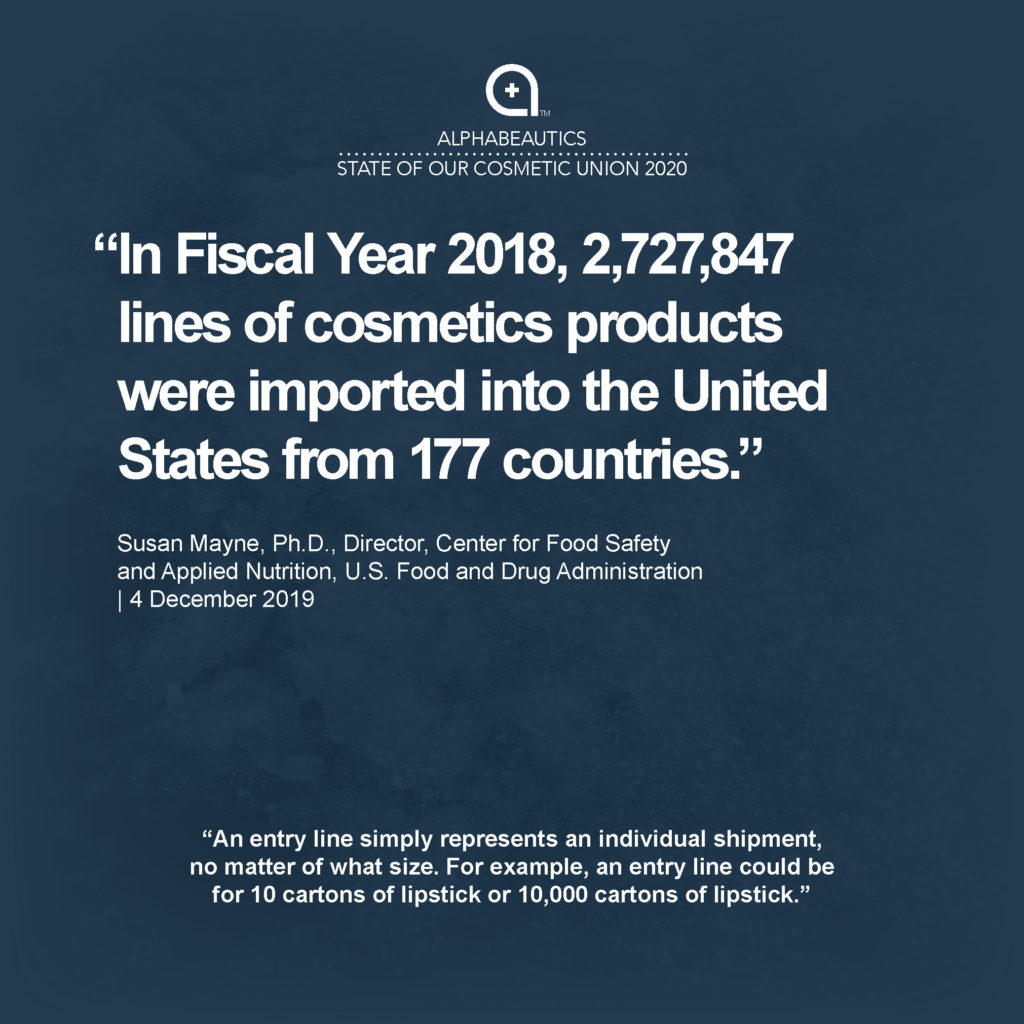
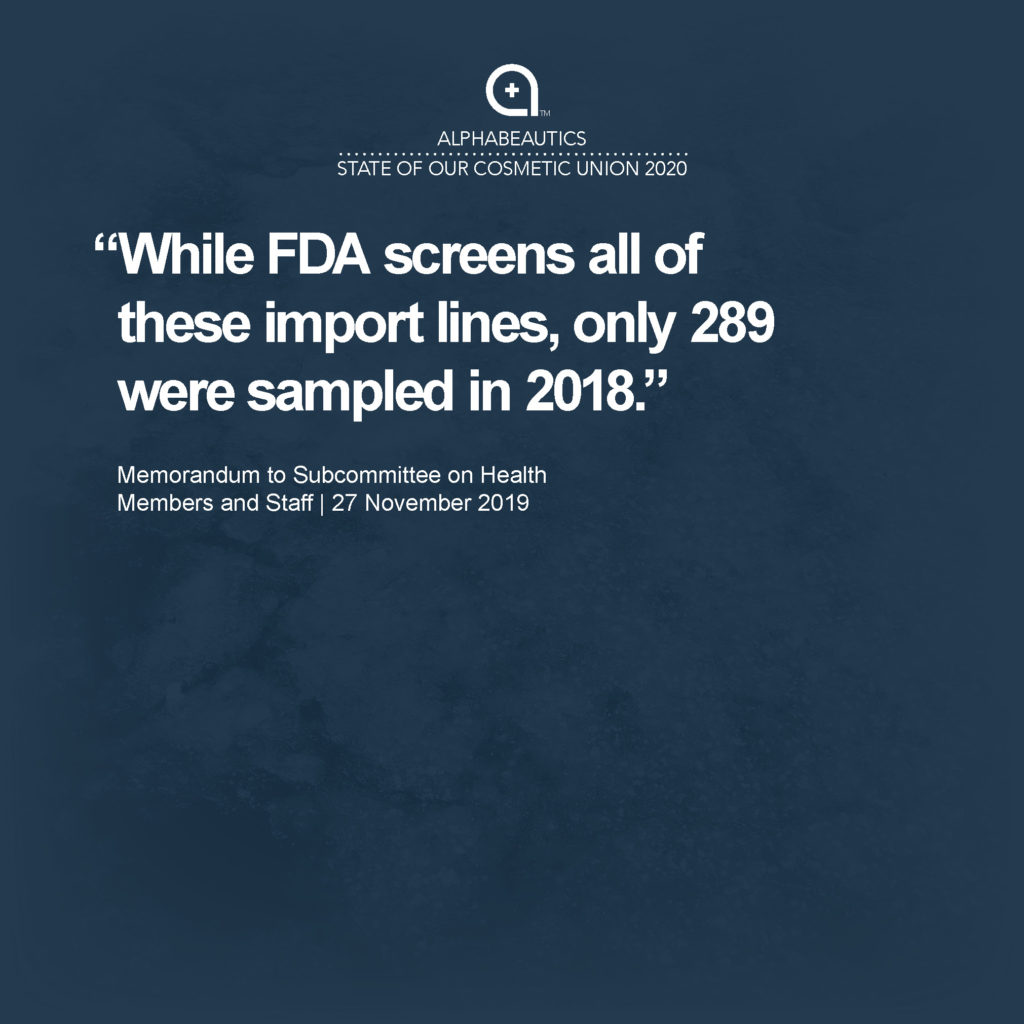
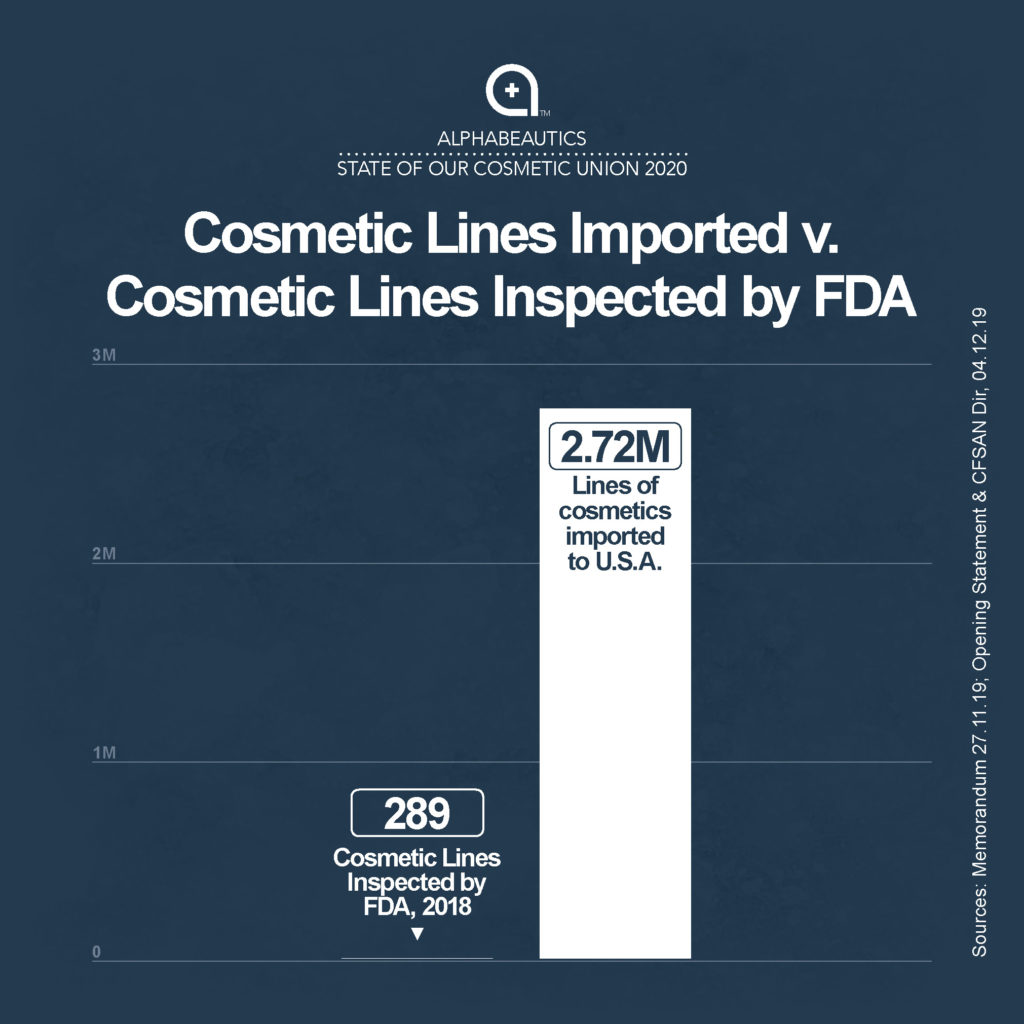
“In fiscal year 2018, there were 2,727,847 lines of cosmetic imports from 177 countries. While FDA screens all of these import lines, only 289 were sampled in 2018.” – Memorandum to Subcommittee on Health Members and Staff, 27 November 2019
“Under the FD&C Act, cosmetic products and ingredients (with the exception of color additives) are not subject to FDA premarket approval or premarket notification to FDA.” – Susan Mayne, Ph.D., Director, Center for Food Safety and Applied Nutrition, U.S. Food and Drug Administration
“In its limited inspections, the FDA has found scary problems, including mold in Chinese eyeshadow and mercury in skin cream.” – Opening Statement, Chairwoman Anna G. Eshoo, Subcommittee on Health, Energy and Commerce Committee, Hearing on “Building Consumer Confidence by Empowering FDA to Improve Cosmetic Safety,” 4 December 2019
“Without FDA regulations defining words like “natural” and “organic,” consumers are left deciphering the complexity of ingredient safety on their own.” – Gregg Renfrew, Founder and CEO, Beautycounter, LLC. Written Statement Before The Subcommittee On Health Of The U.S. House Committee On Energy And Commerce, 4 December 2019
8. The Cosmetics Industry Regulates Itself
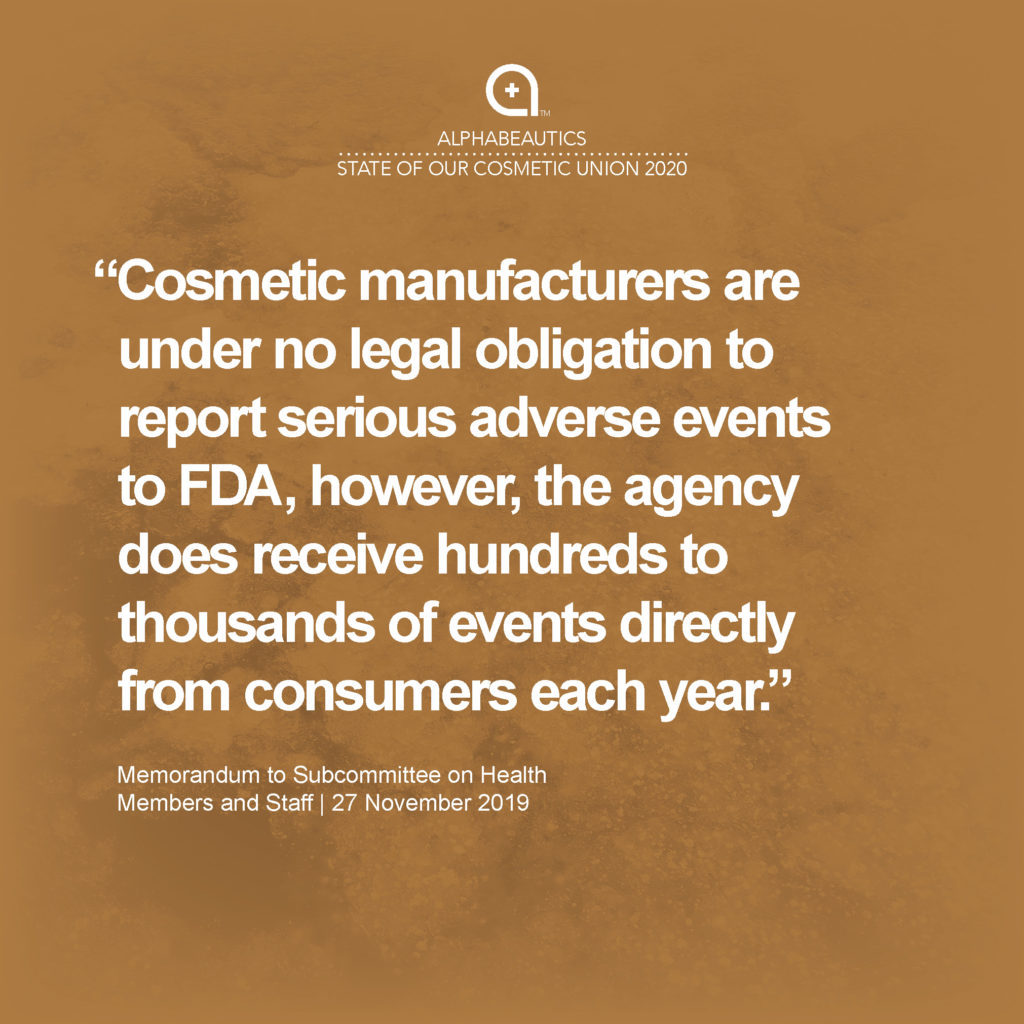

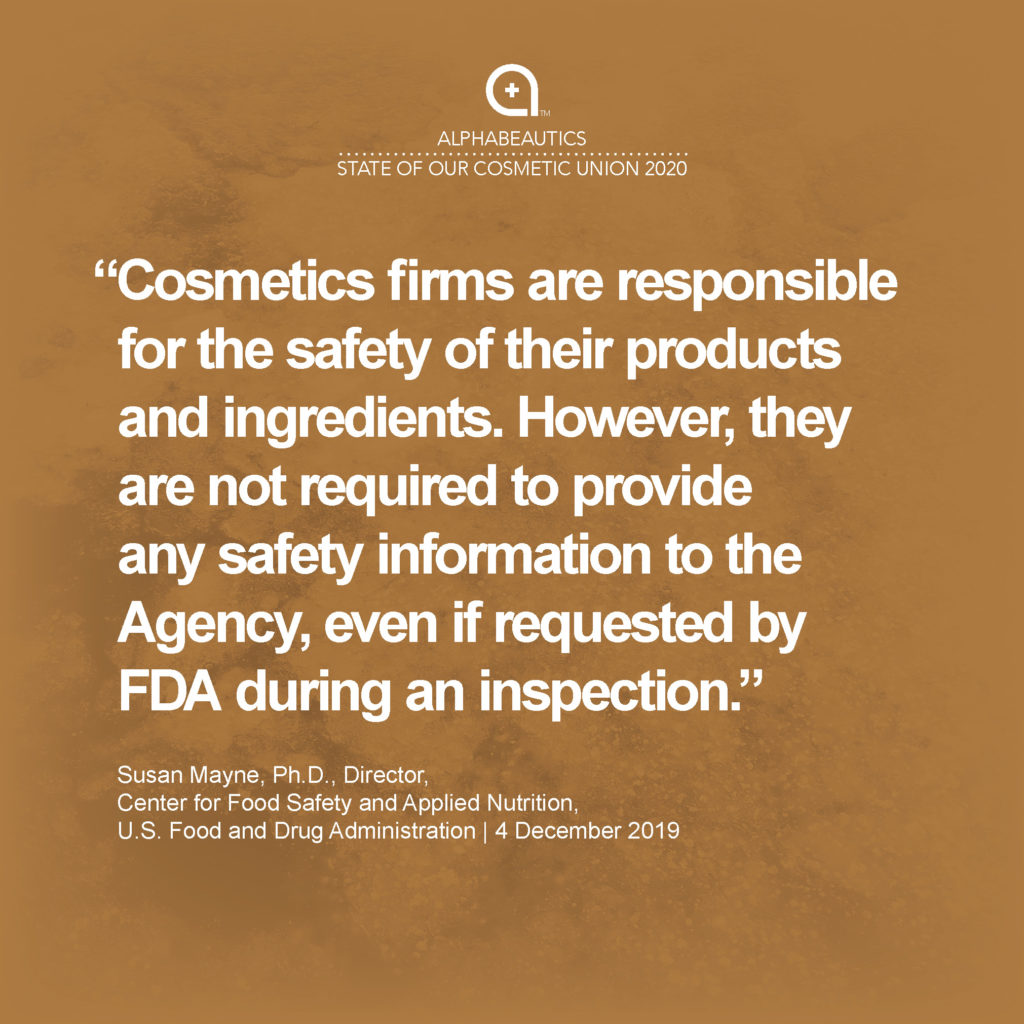
9. Size & Scope of the Industry
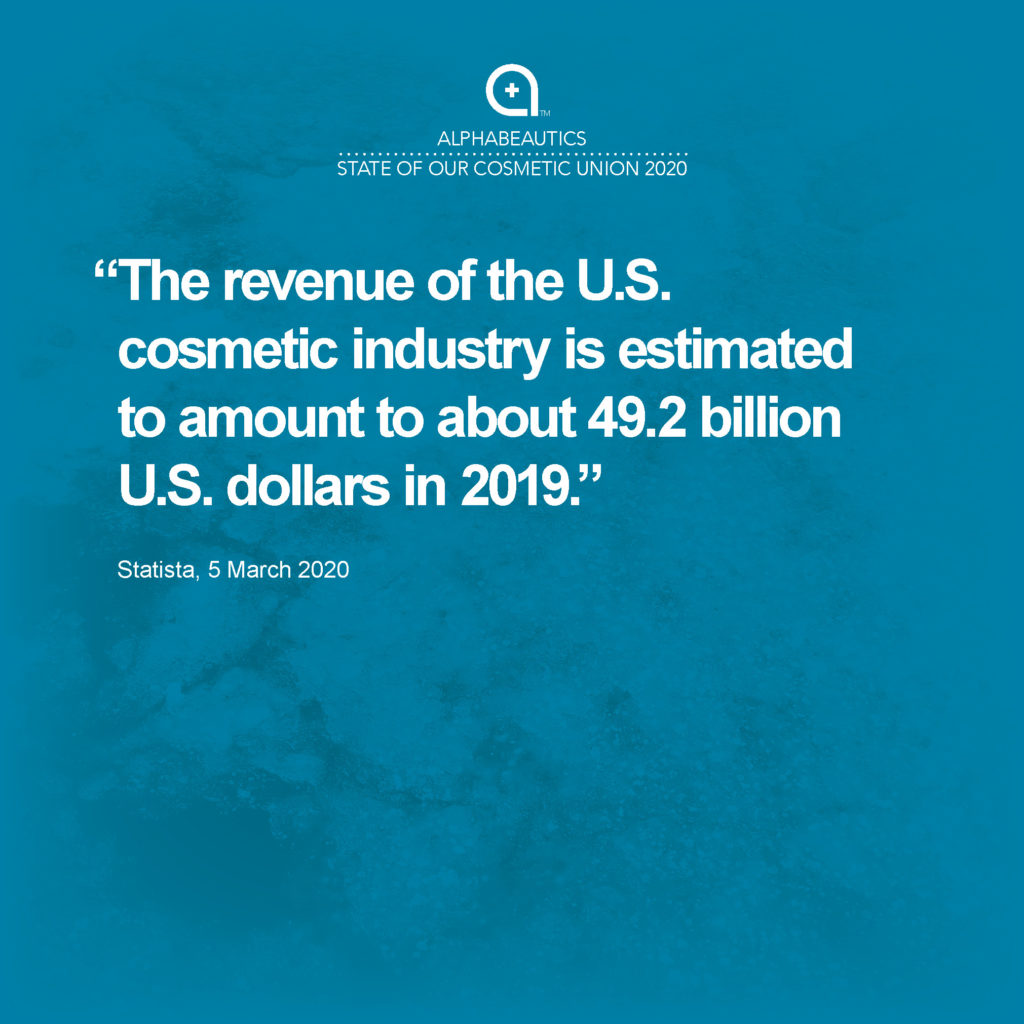
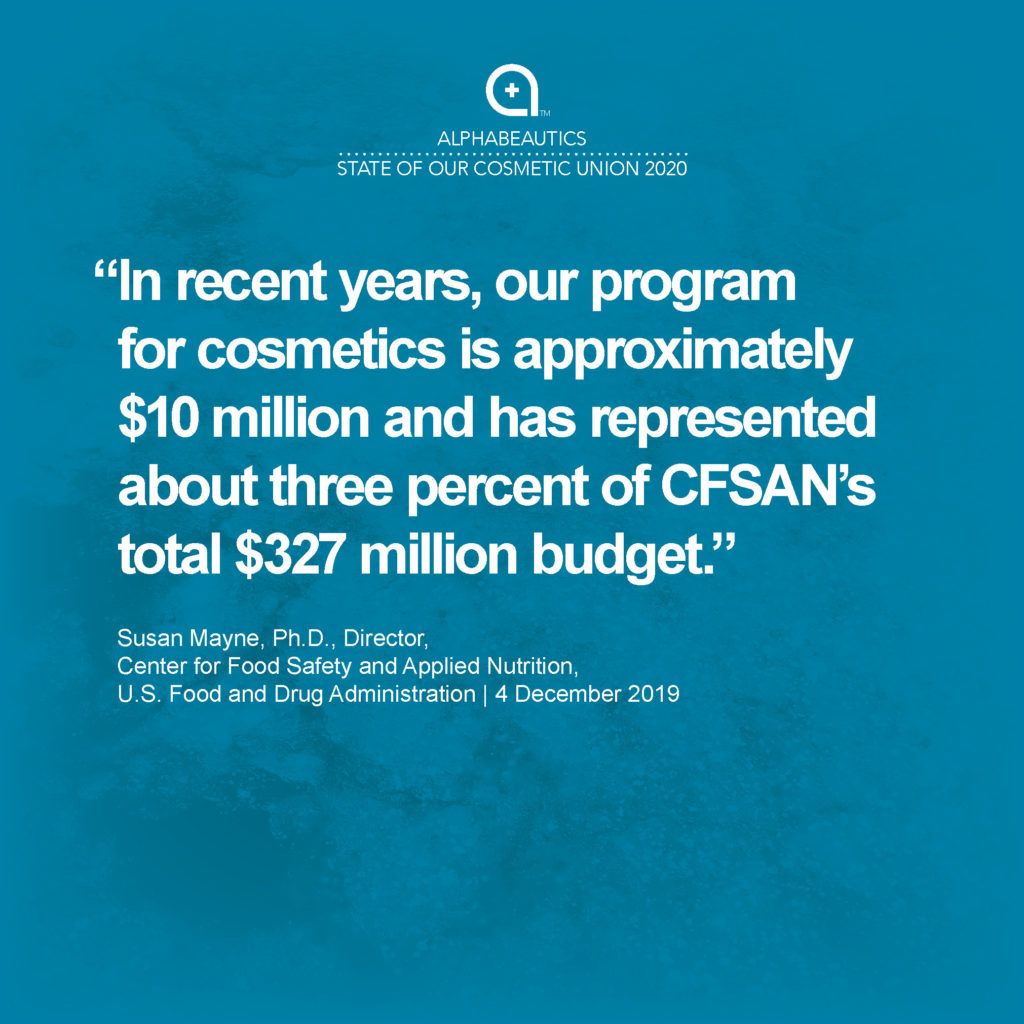
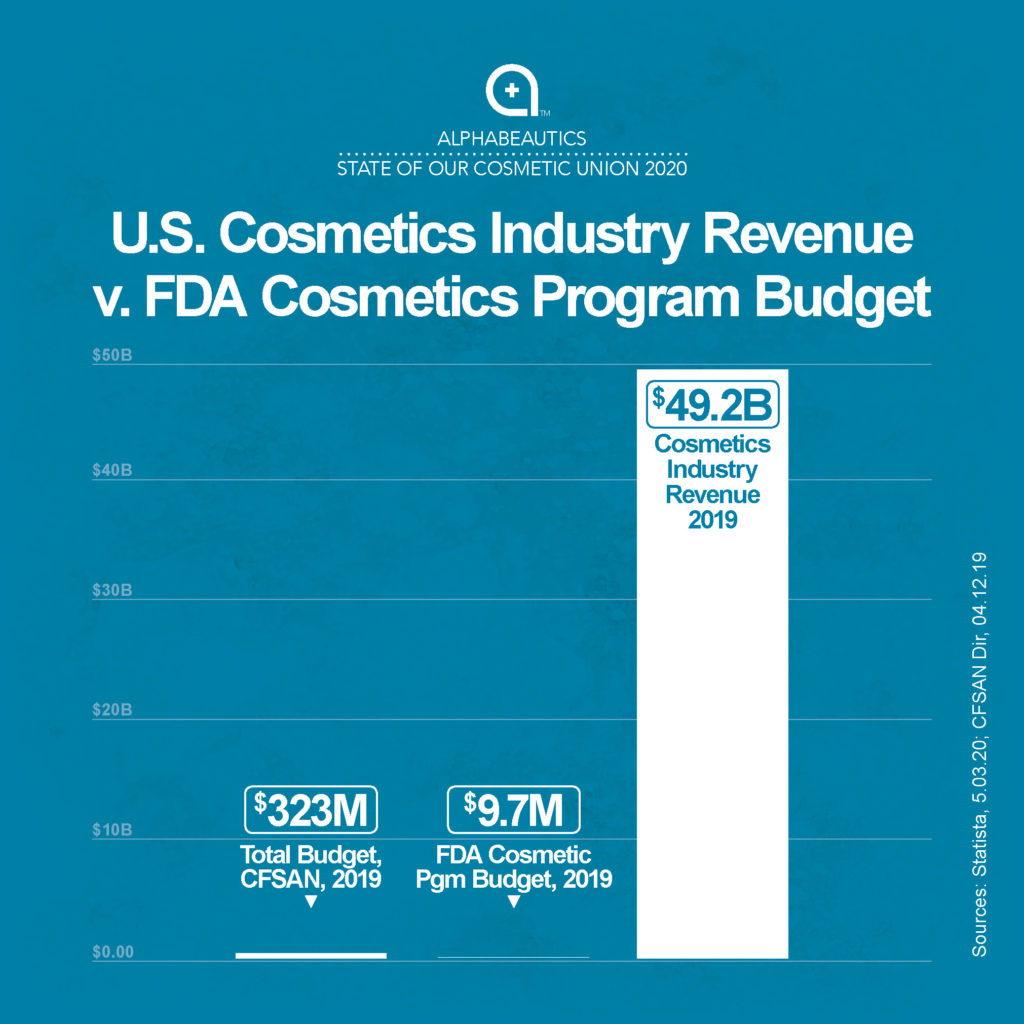
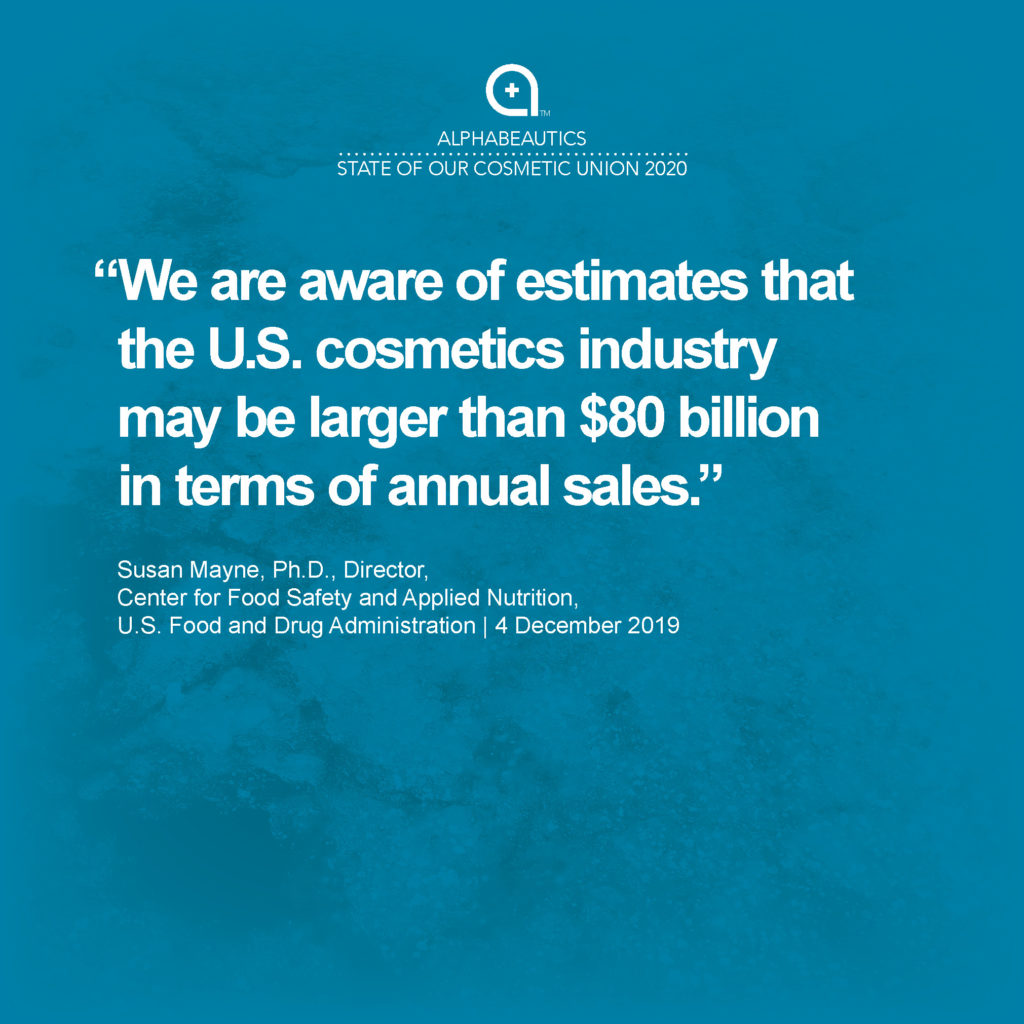
10. The Bright Side: Clean Cosmetics & Natural Beauty Are Booming
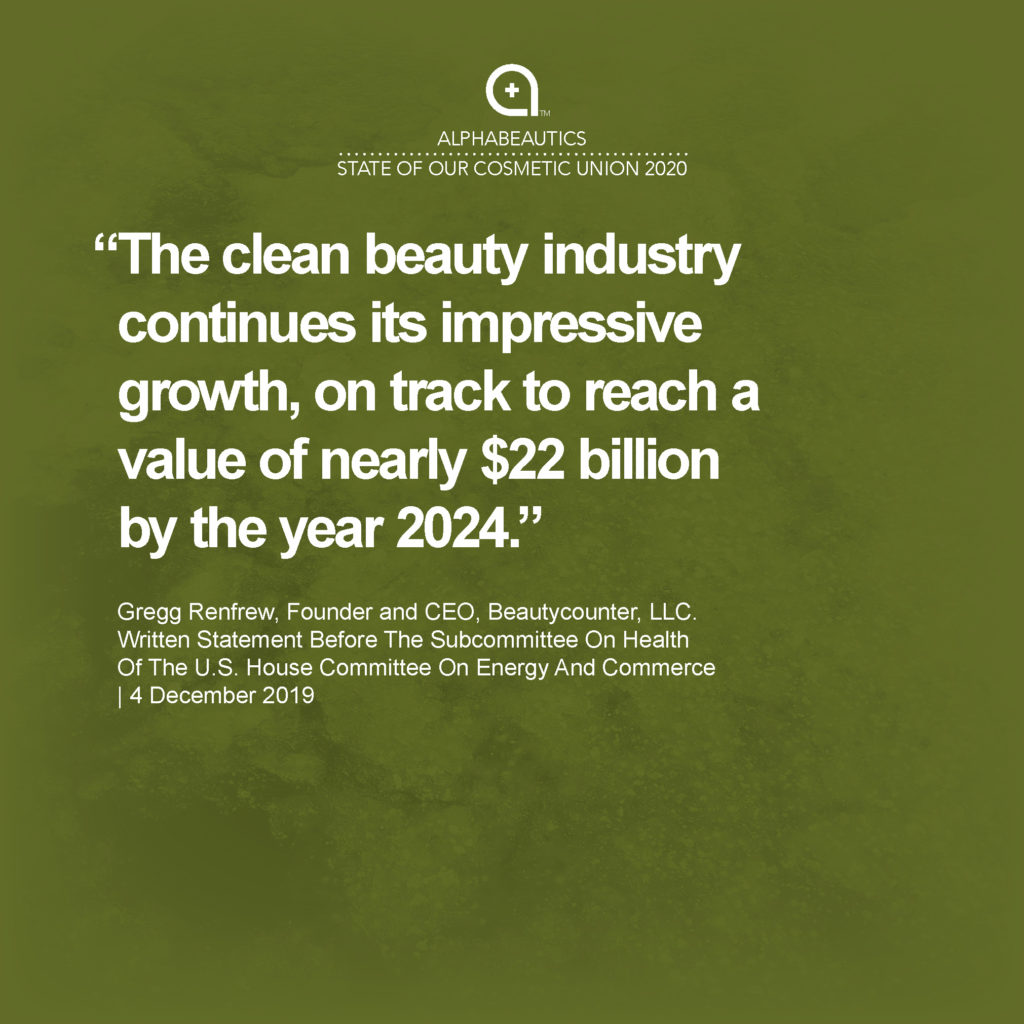
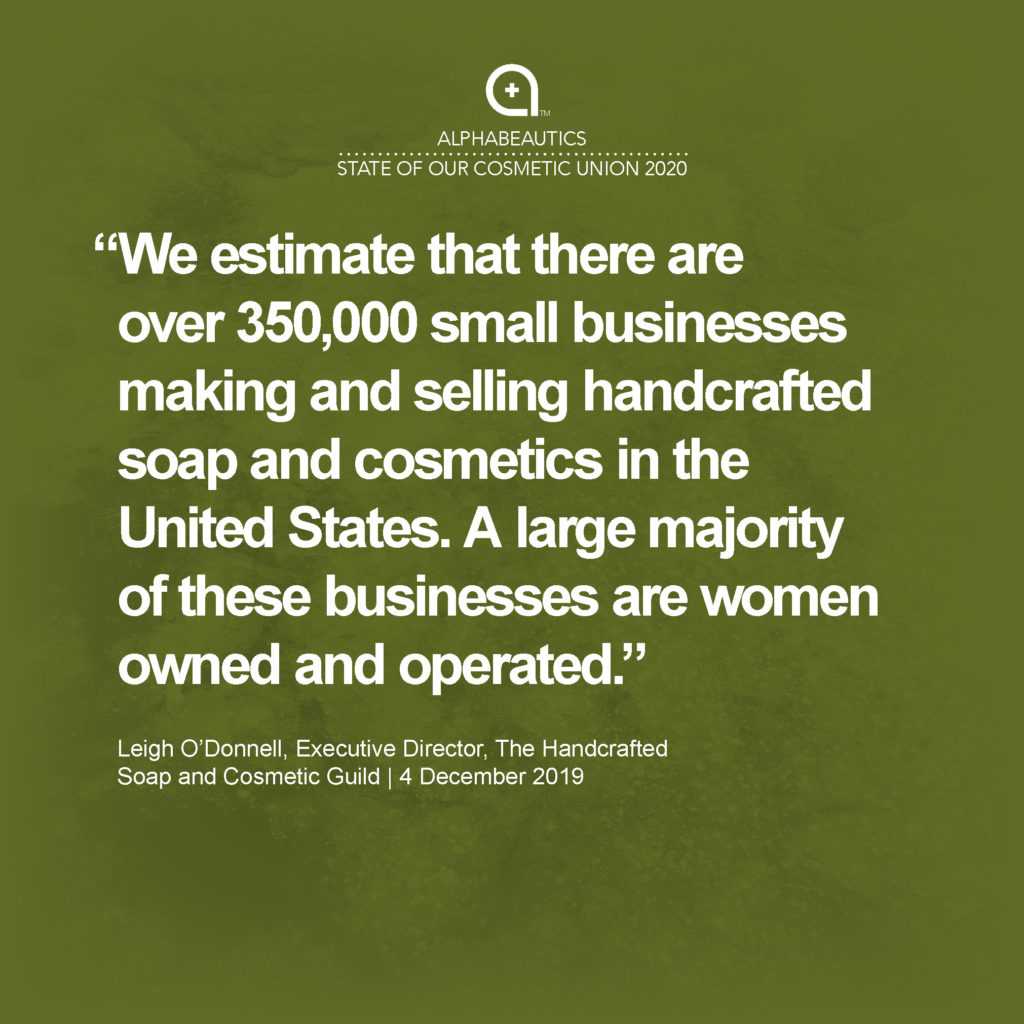
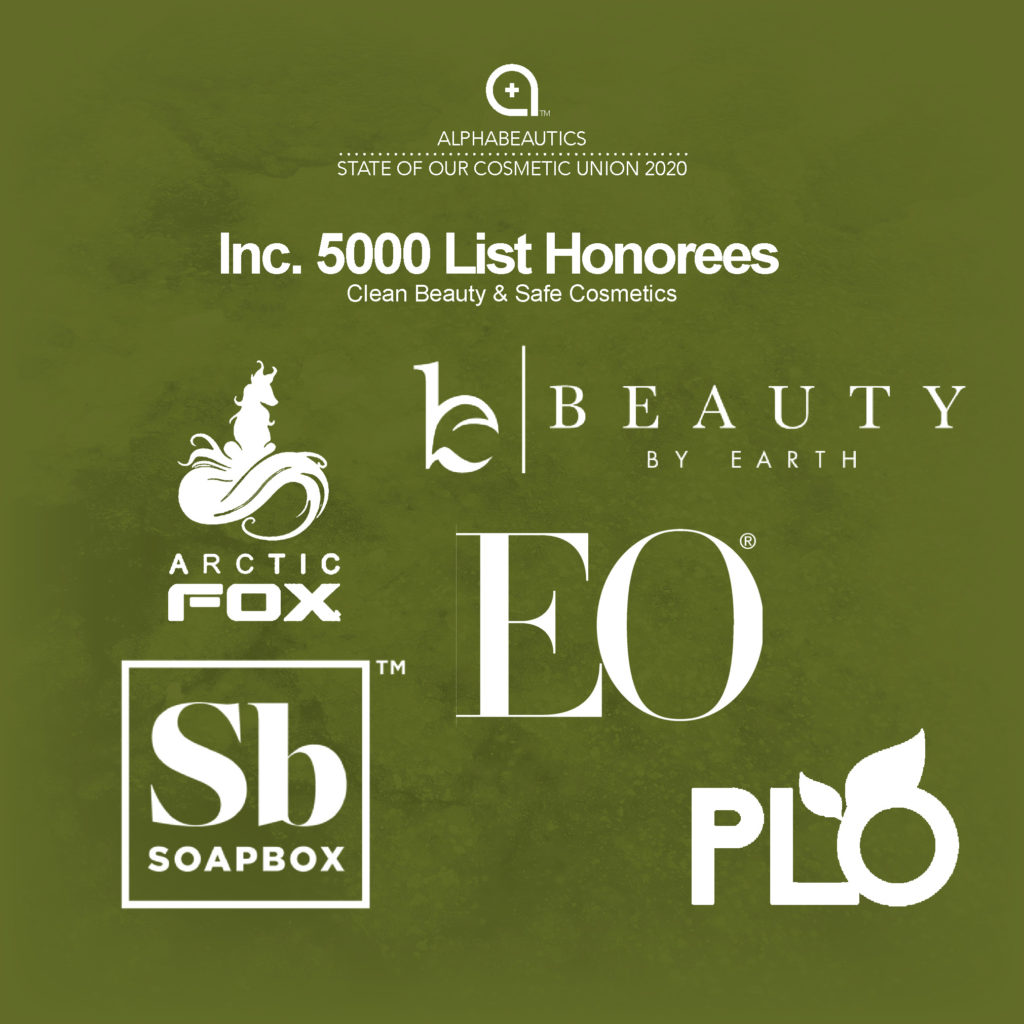
As consumers become more cosmetic conscious, clean, natural and organic cosmetic manufacturers are becoming Inc. 500 and Inc. 5000 honorees in volume, a handful of whom from recent years include—
- No. 437. Soapbox | Sells a high quality soap bar that is made with natural, safe ingredients. For each bar bought through the company’s website, one is donated to people in need in the United States and around the world.
- No. 809 Beauty by Earth | Formulates and sells organic and natural skincare products.
- No. 1376. Boinca, Inc. / Arctic Fox | Sells trendsetting vegan, semi-permanent hair color that infuses free expression with long-lasting, vivid hues. Uses a color formula made in Southern California with non-GMO, plant-based proteins, zero hash chemicals and absolutely no animal testing.
- No. 2033. Primal Life Organics | Makes skincare products that are vegan and gluten-free and do not contain synthetic fragrances or chemical preservatives.
- No. 4,566. EO Products | Creates all-natural, non-GMO, gluten-free, cruelty-free personal care products.



